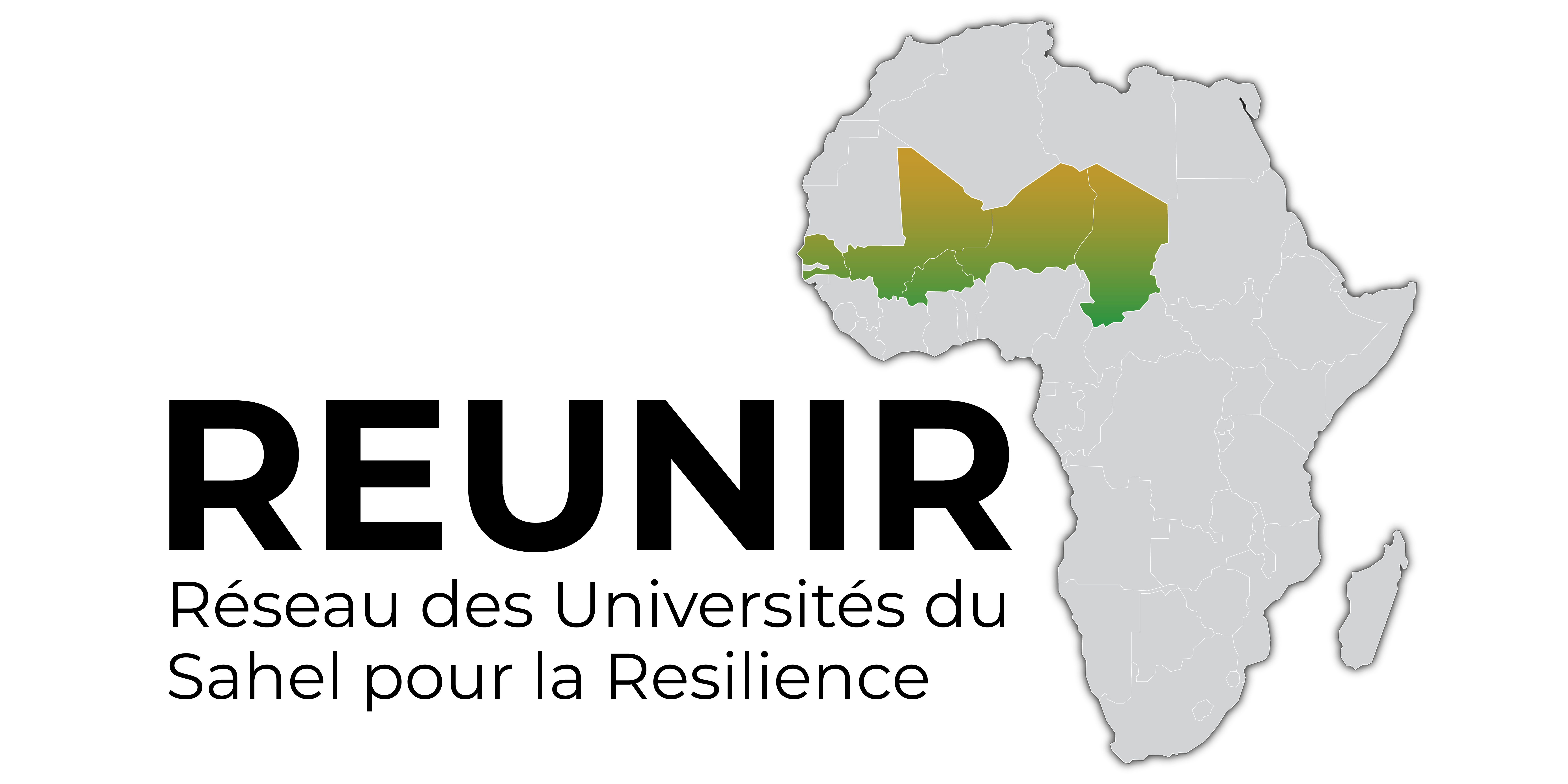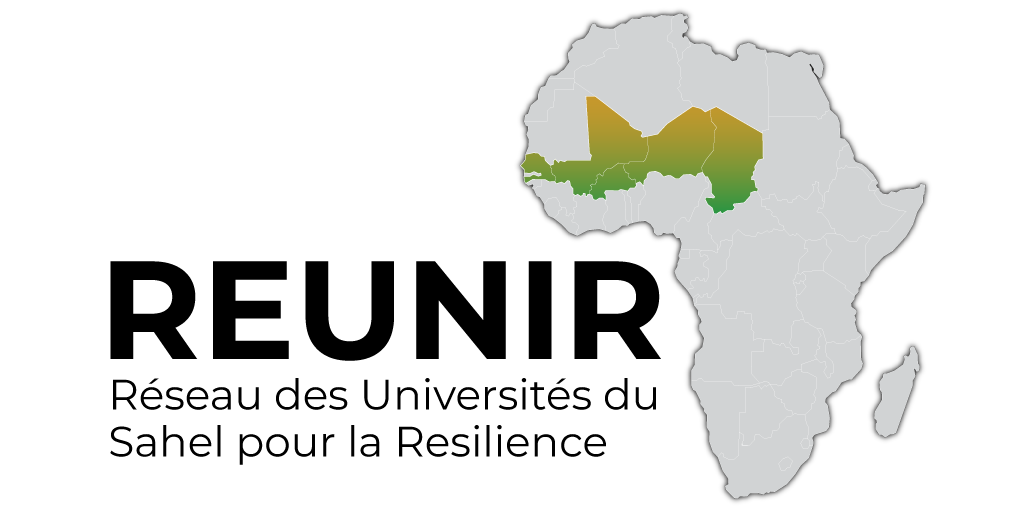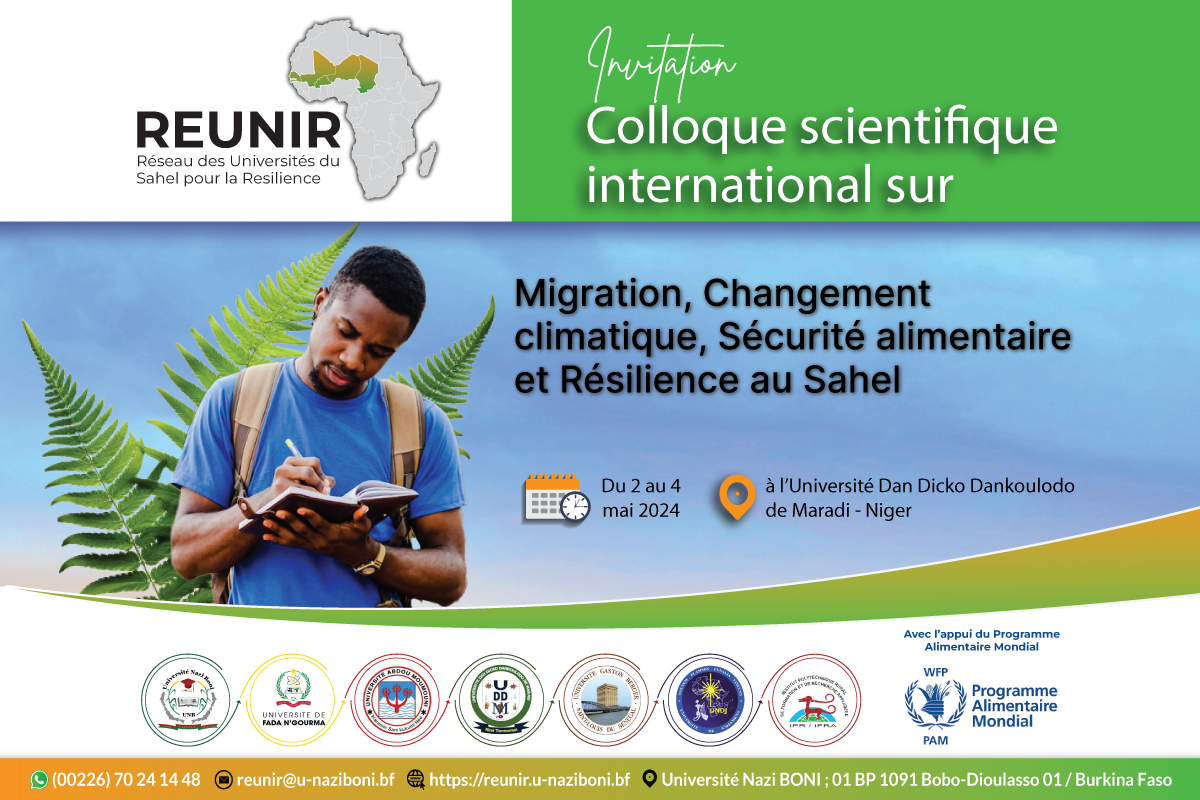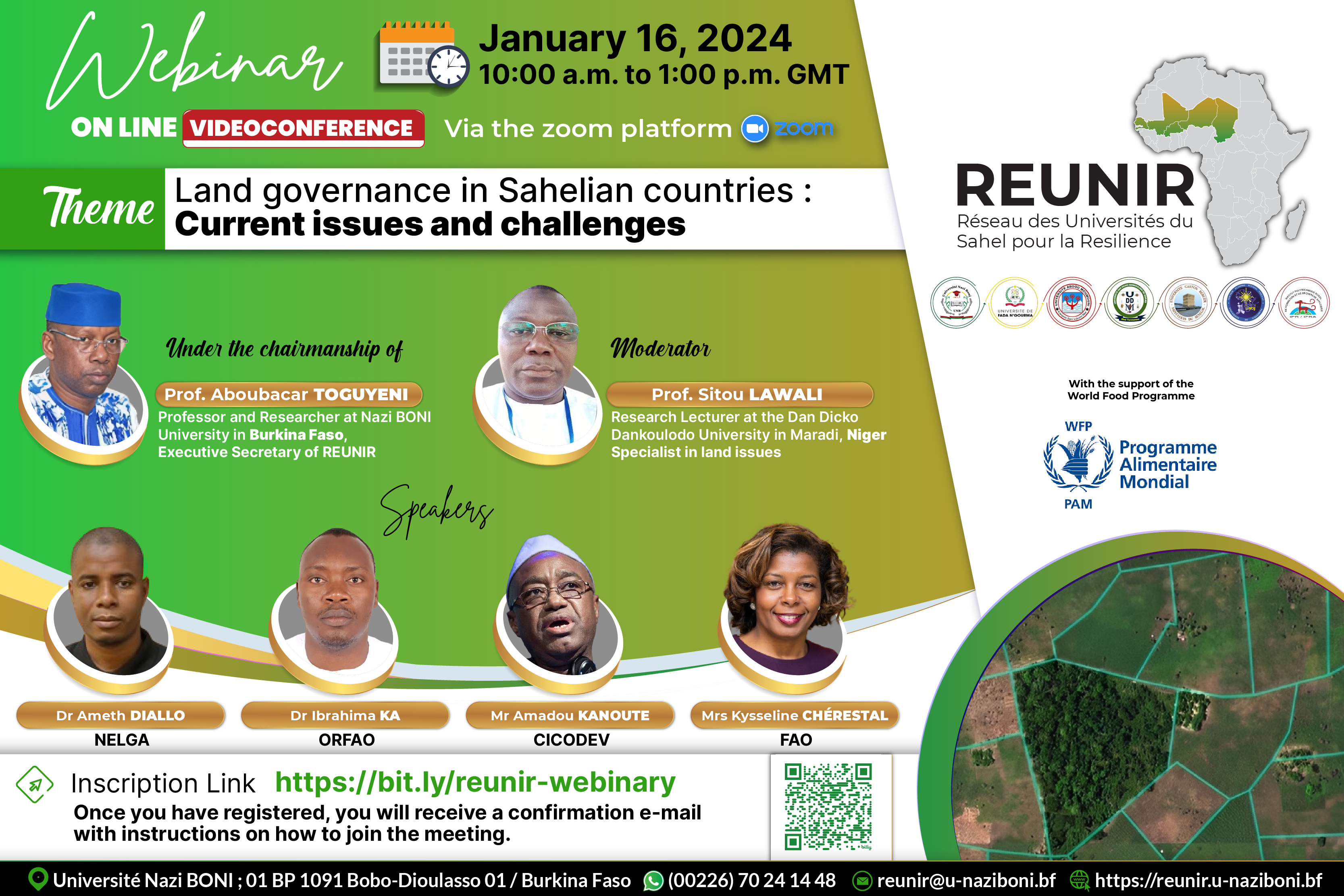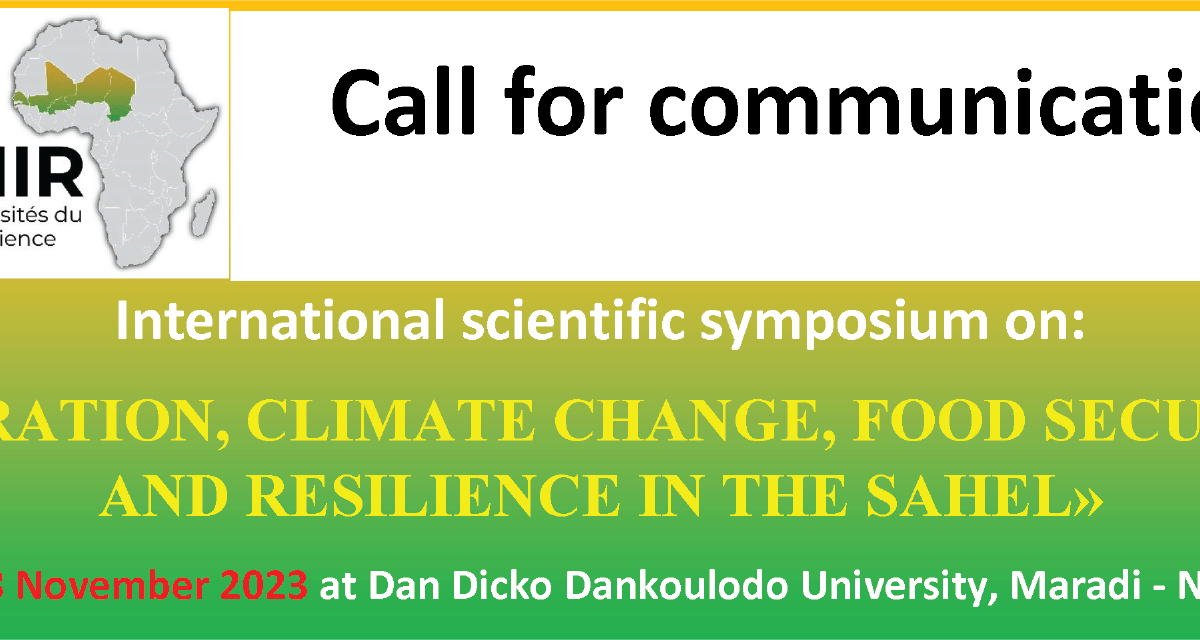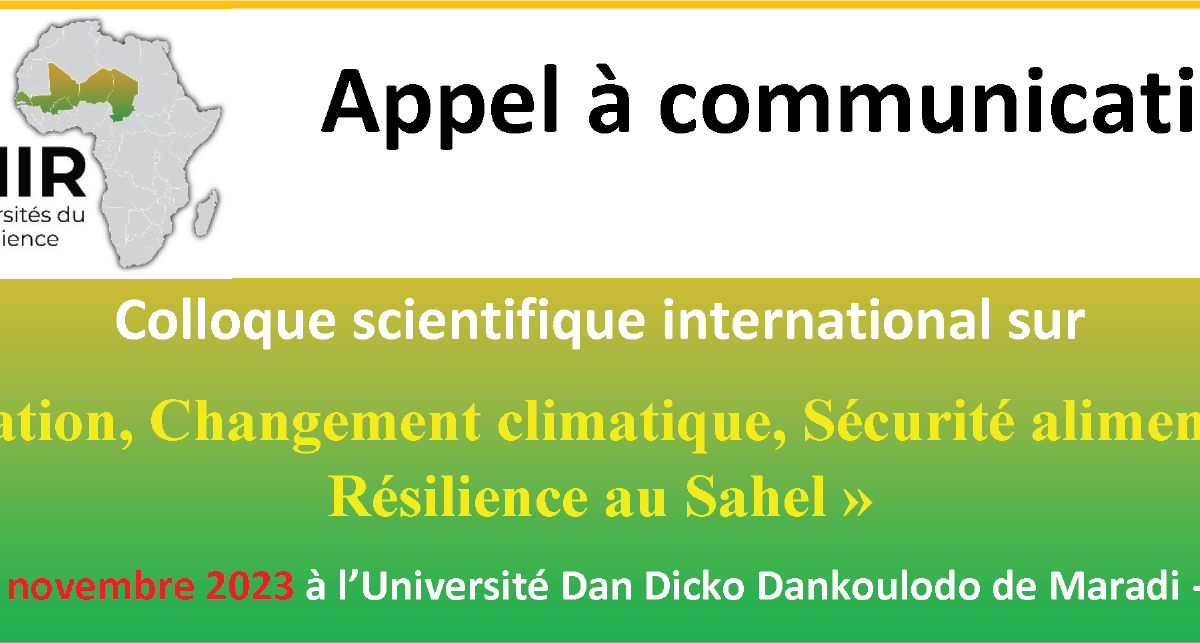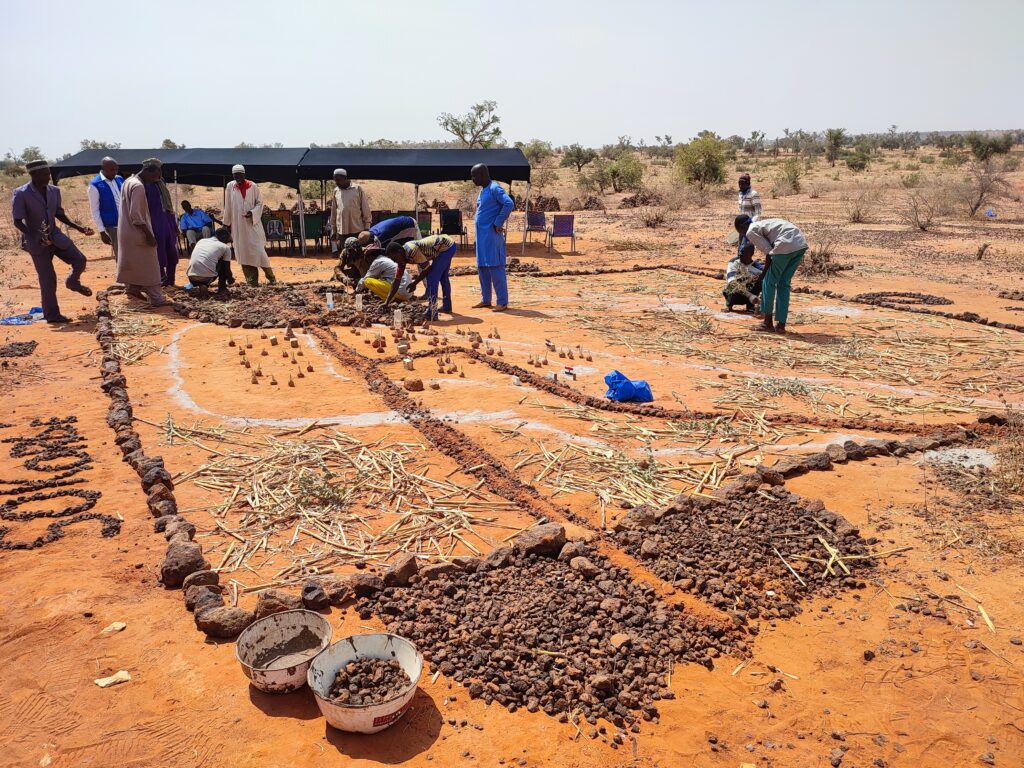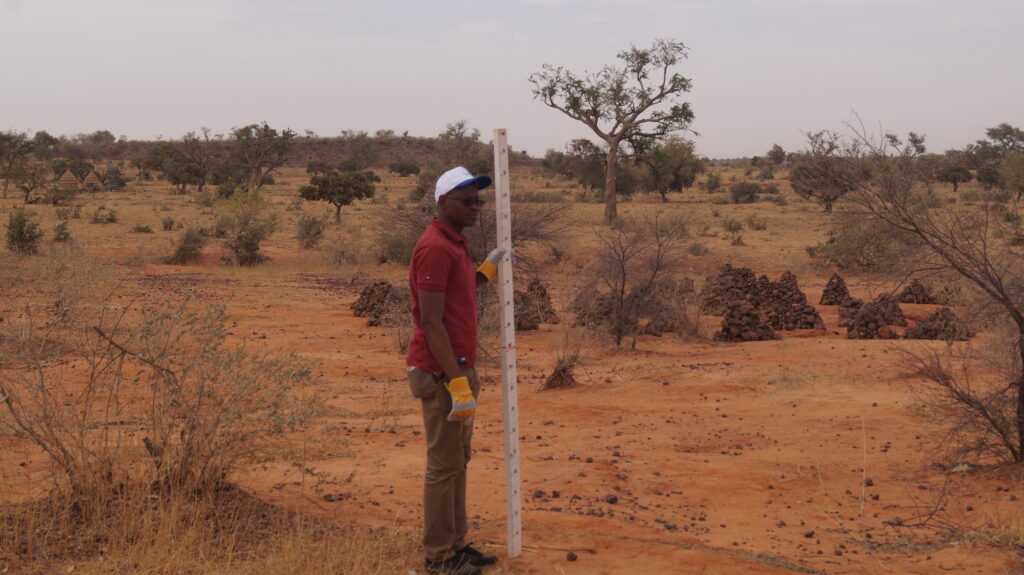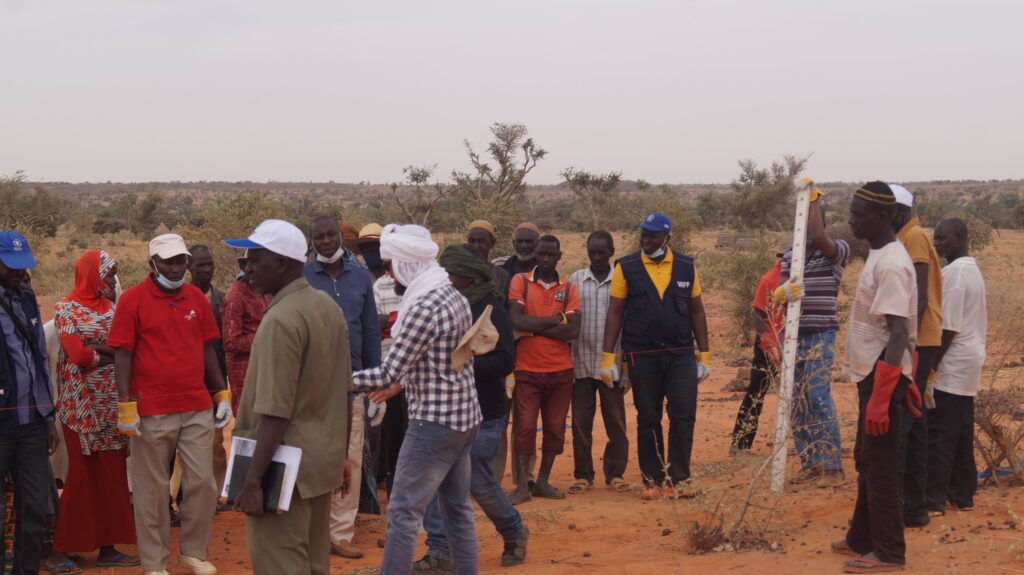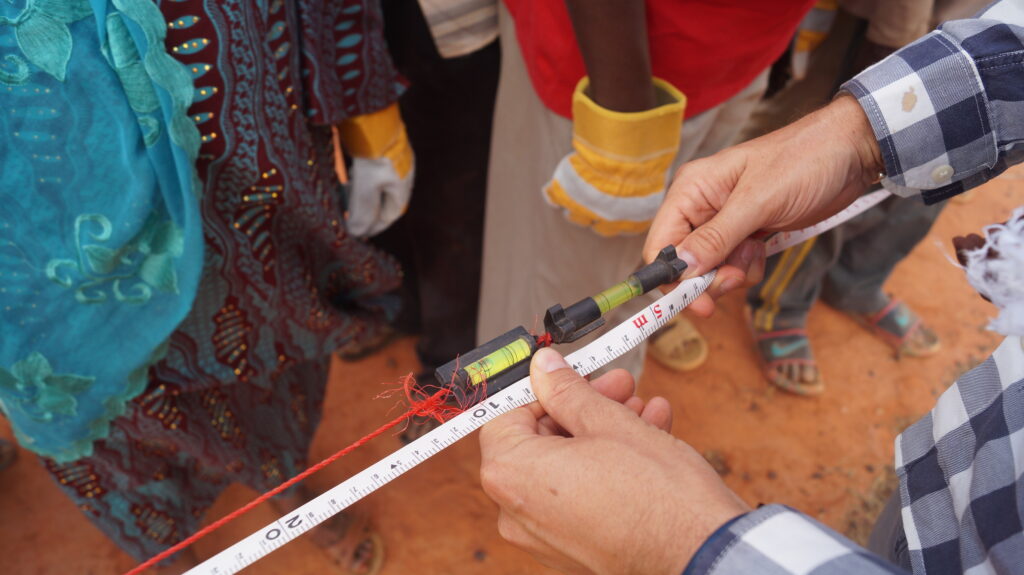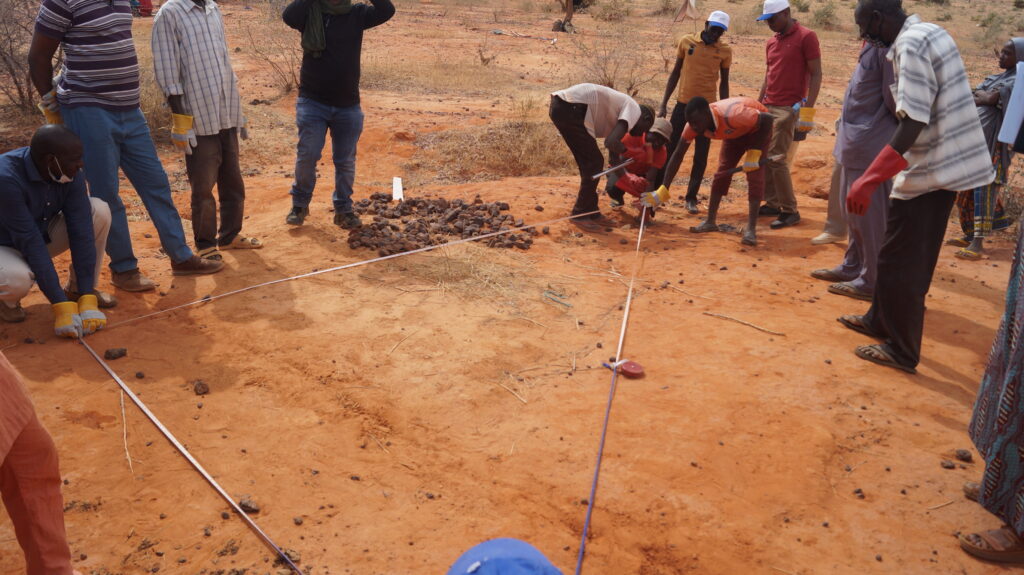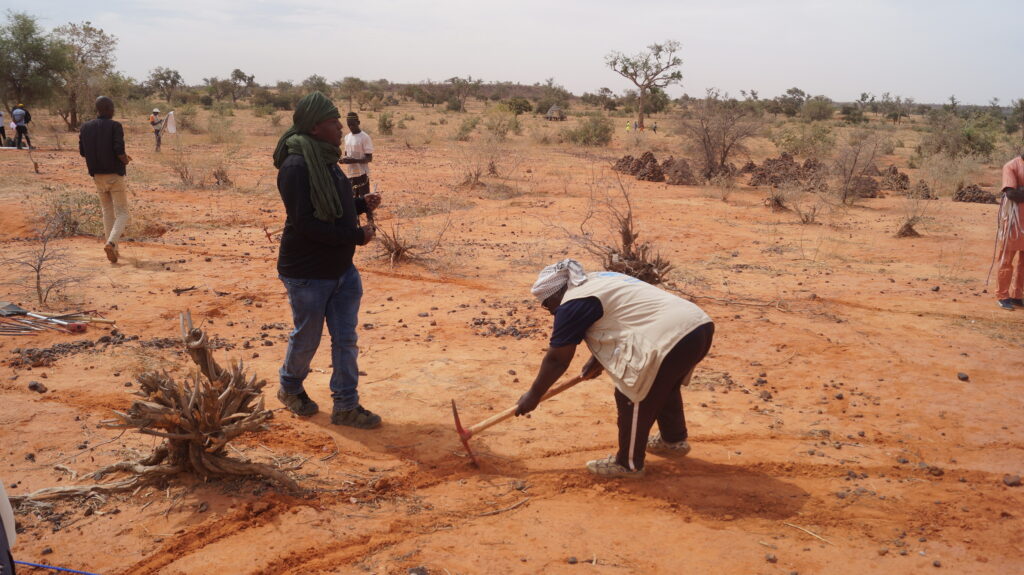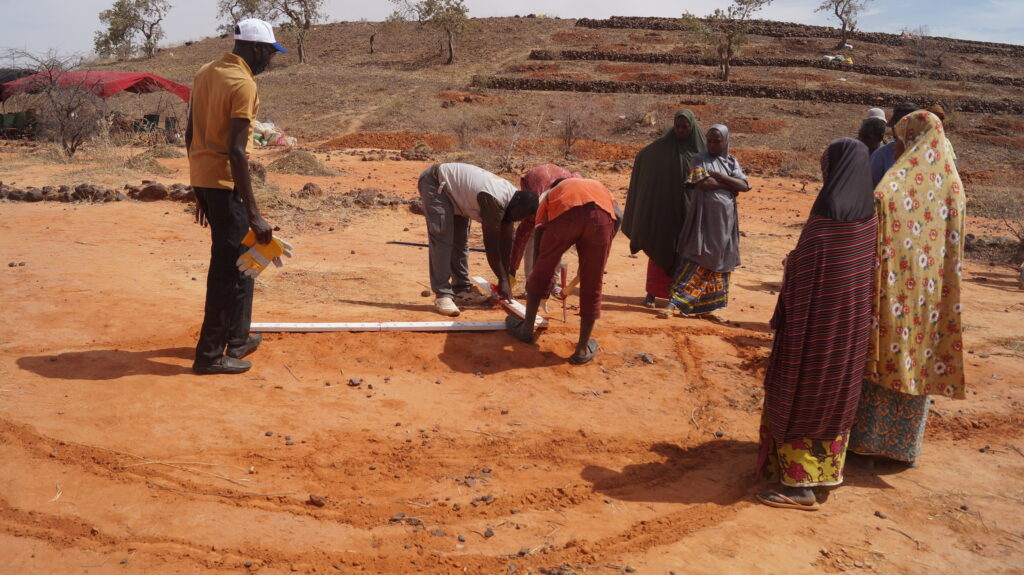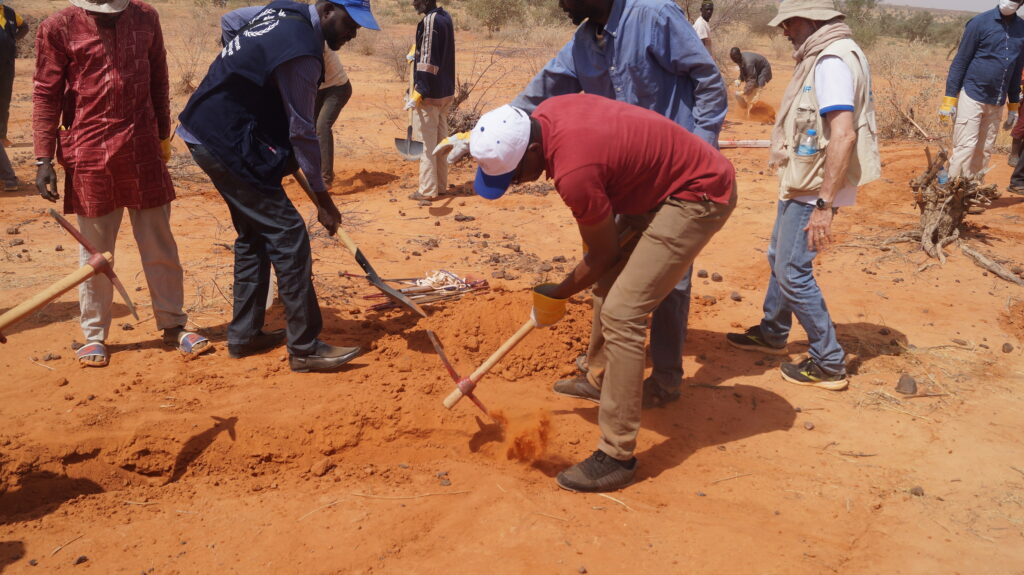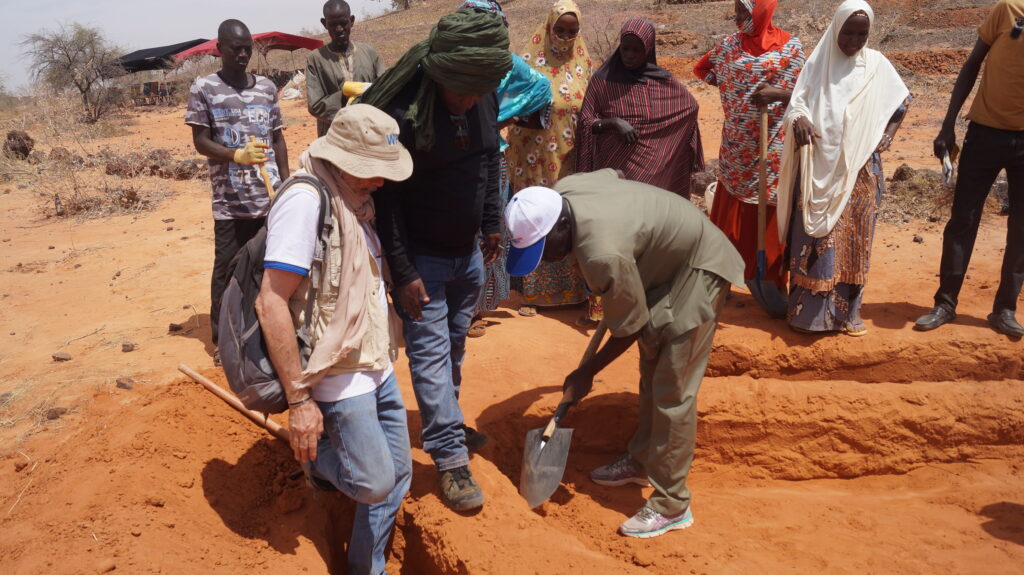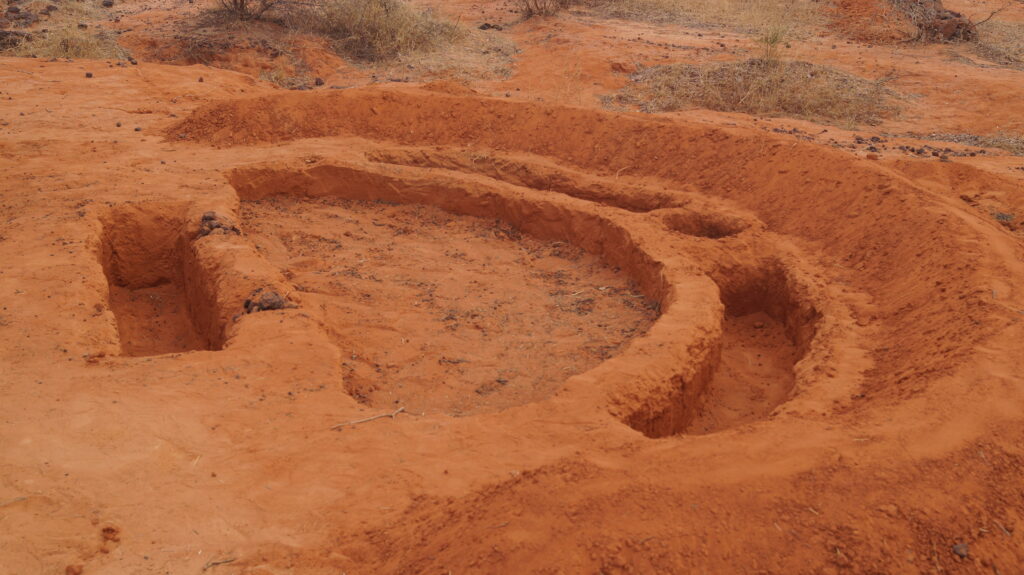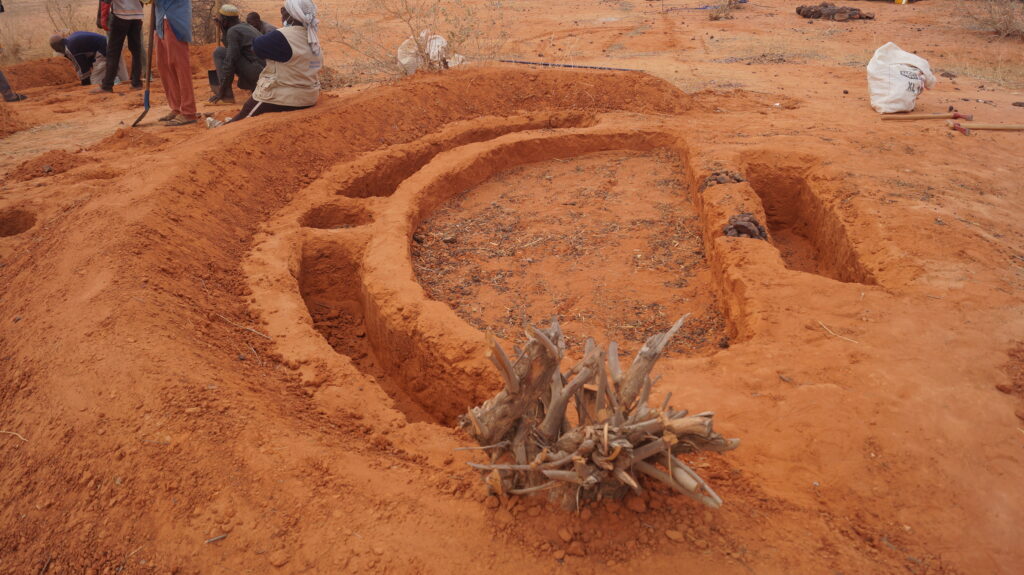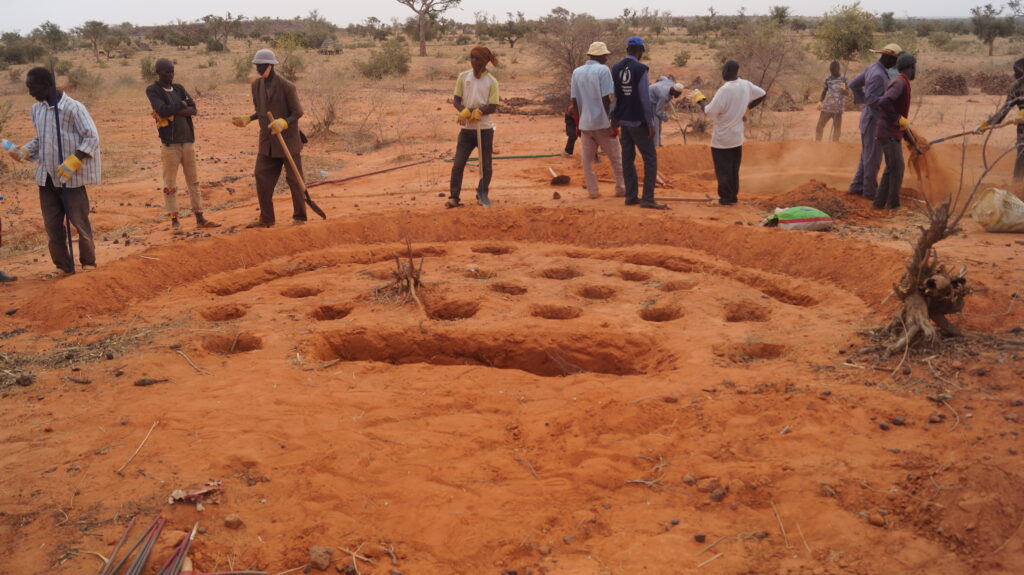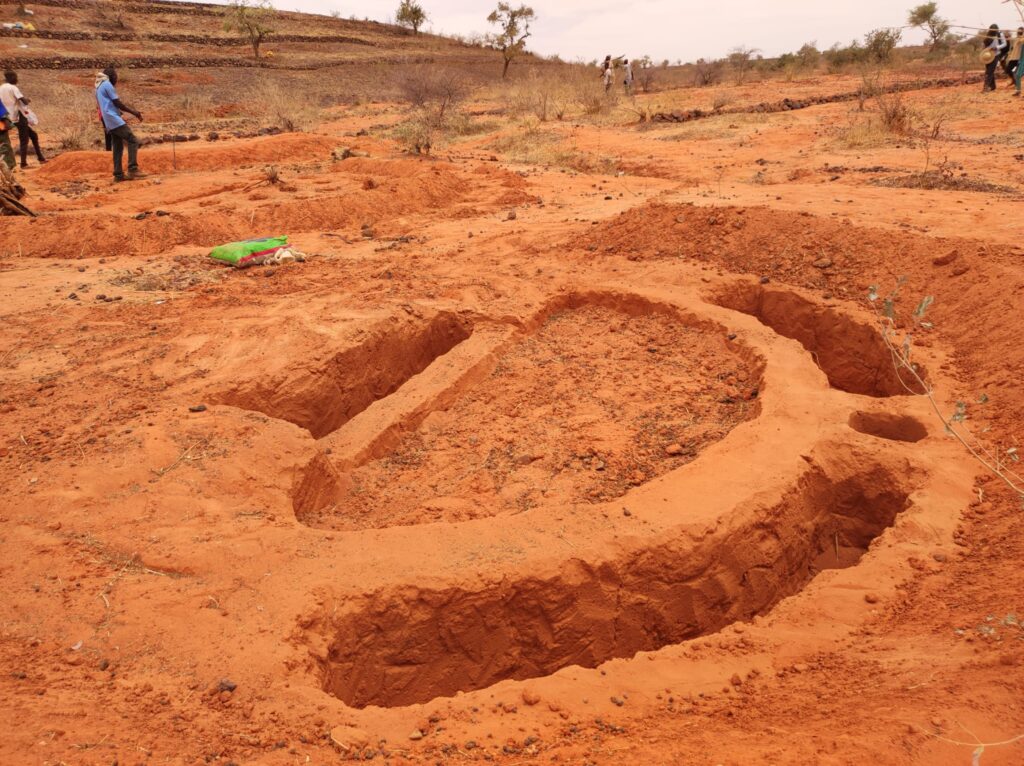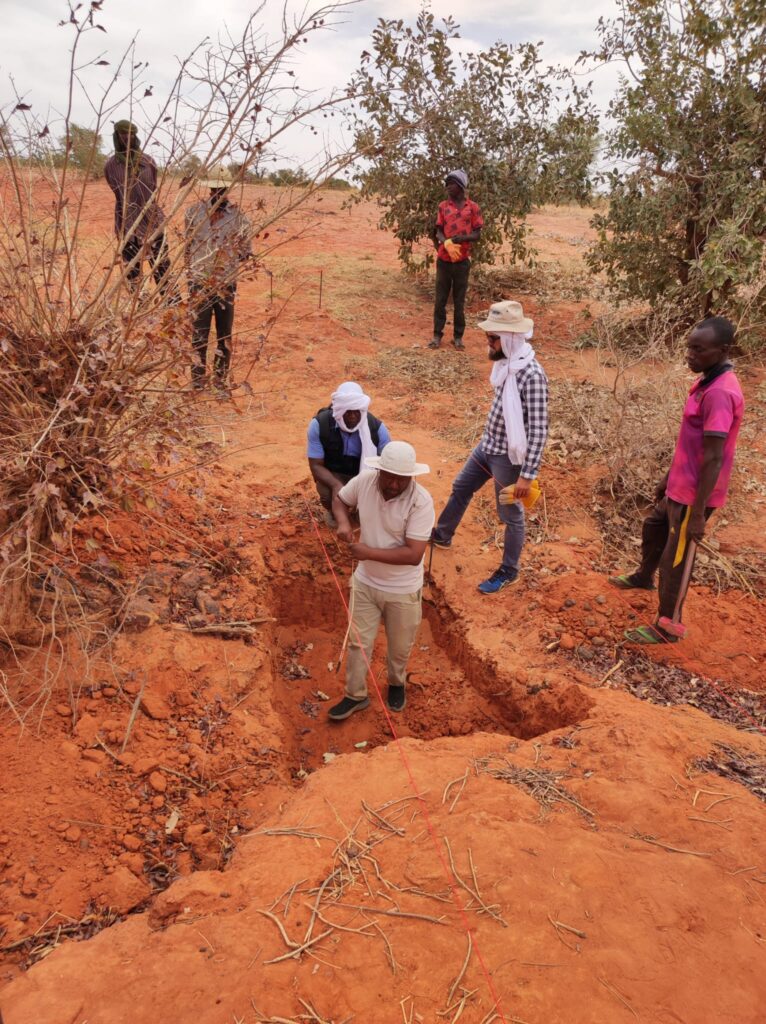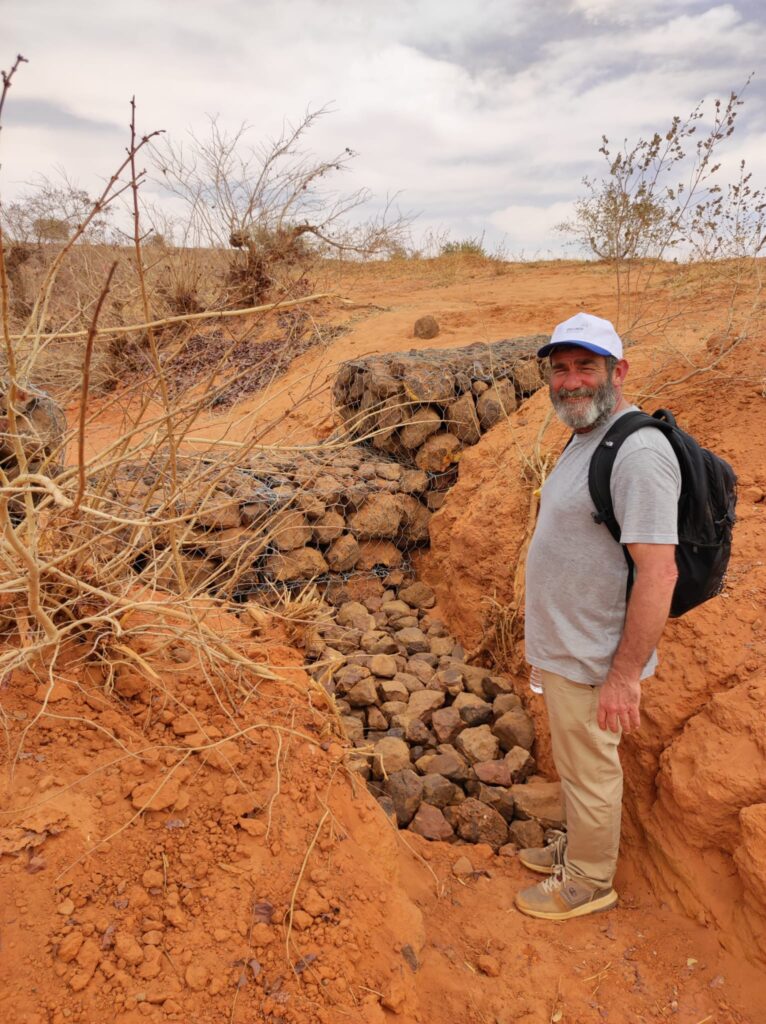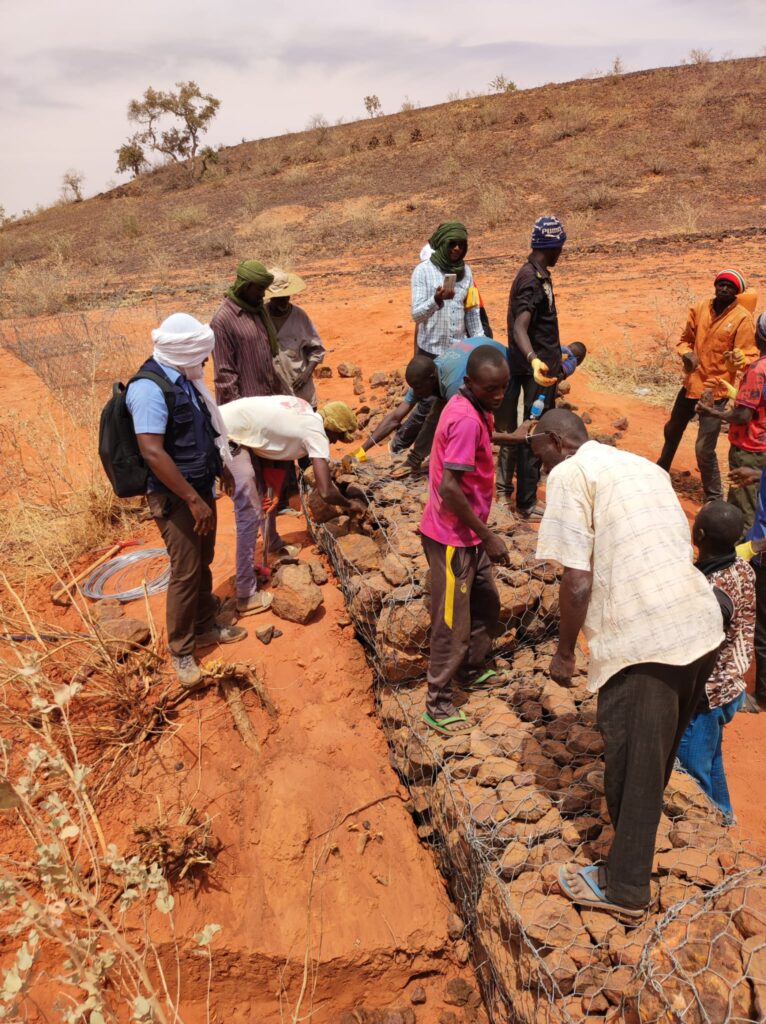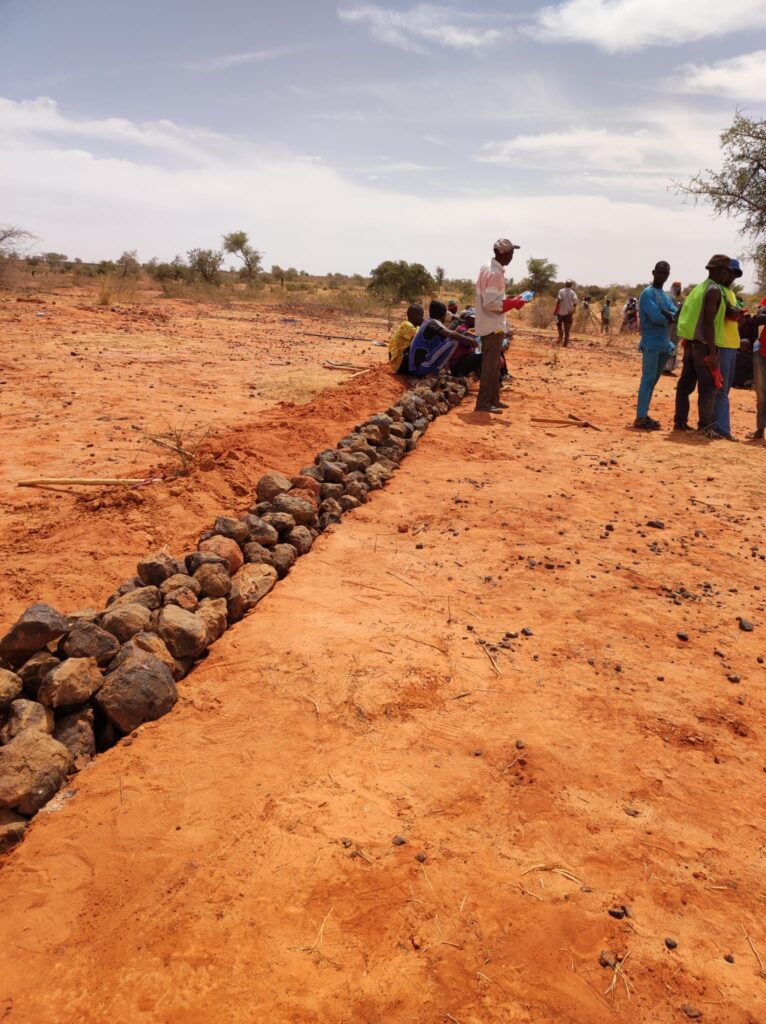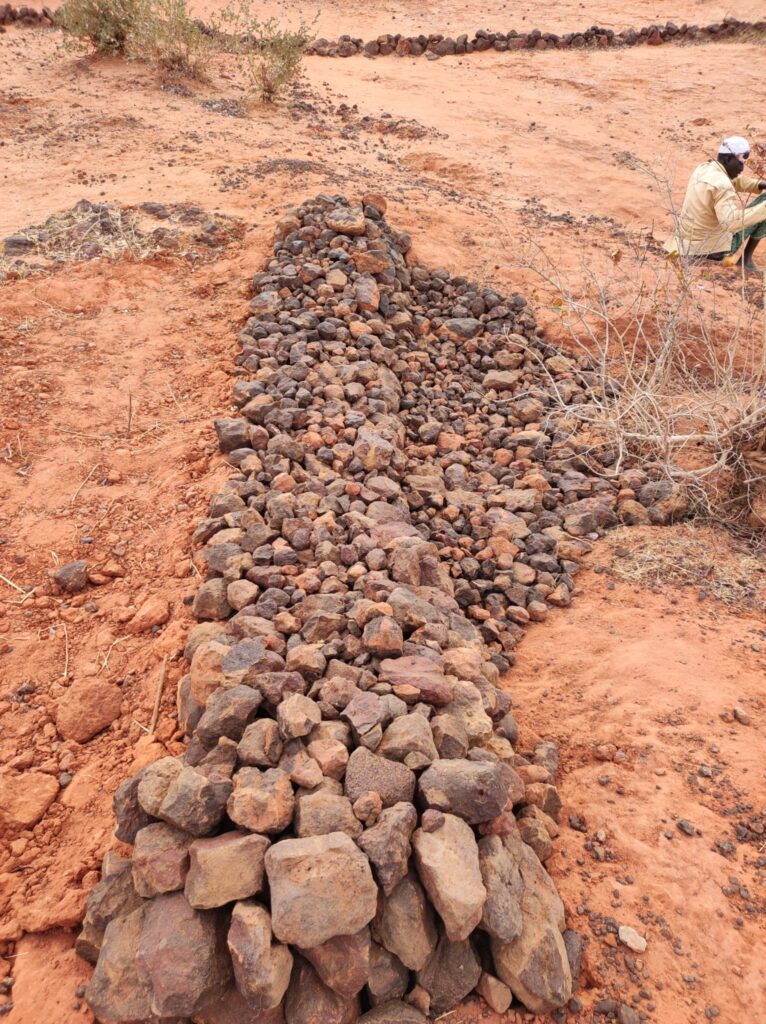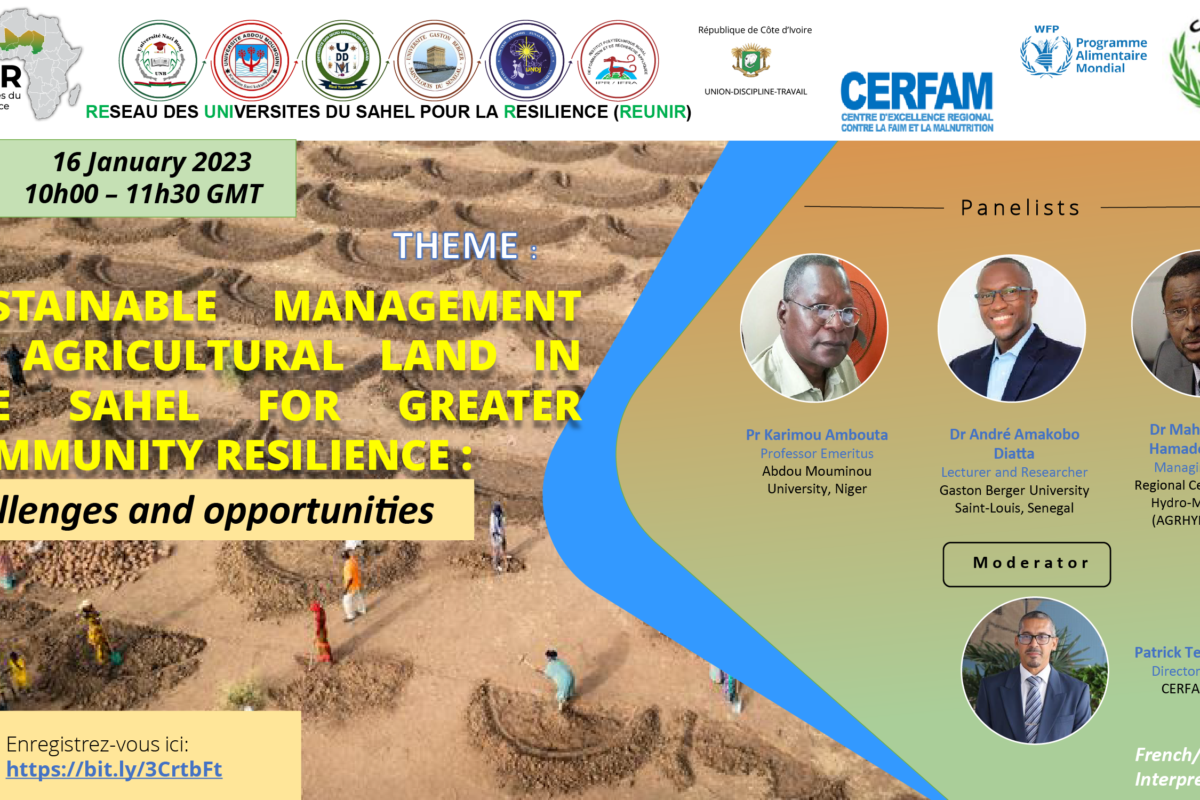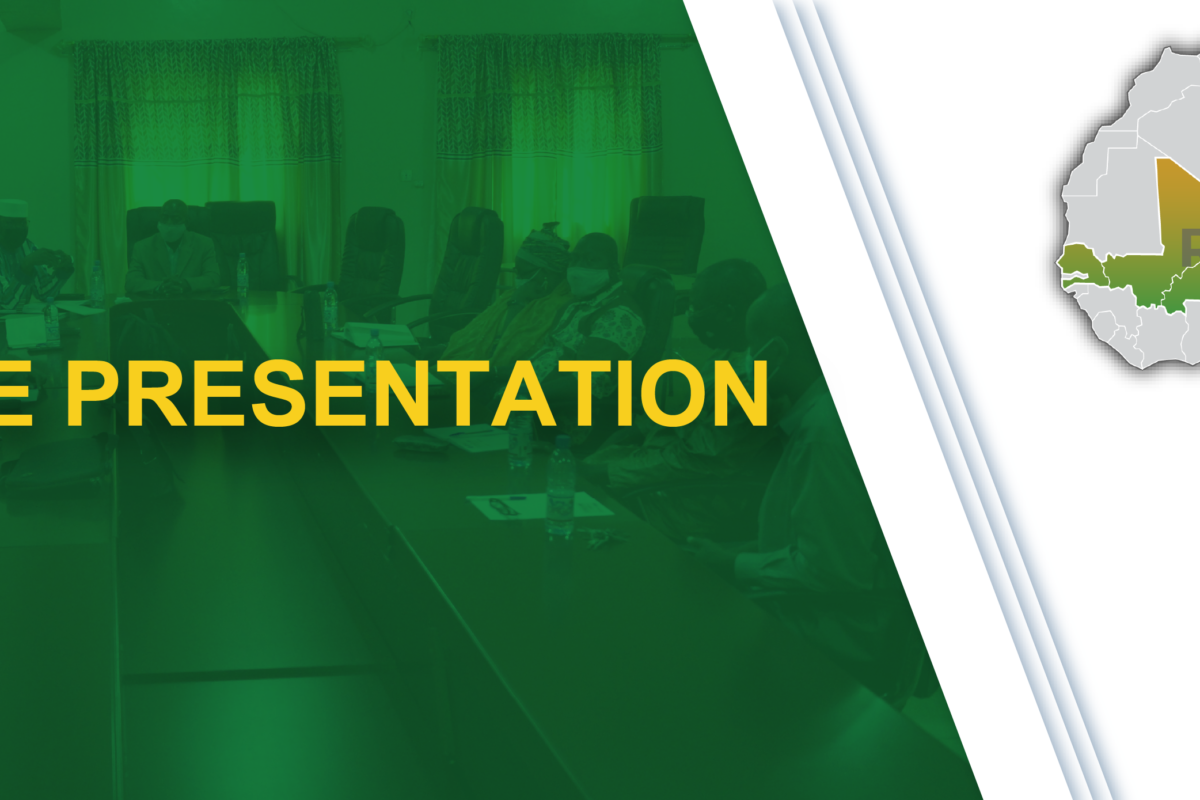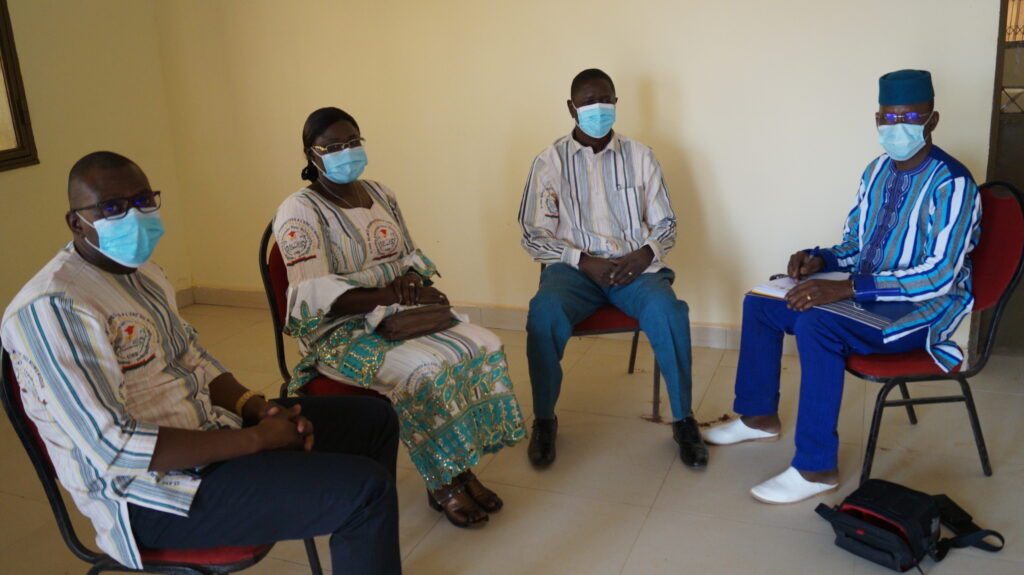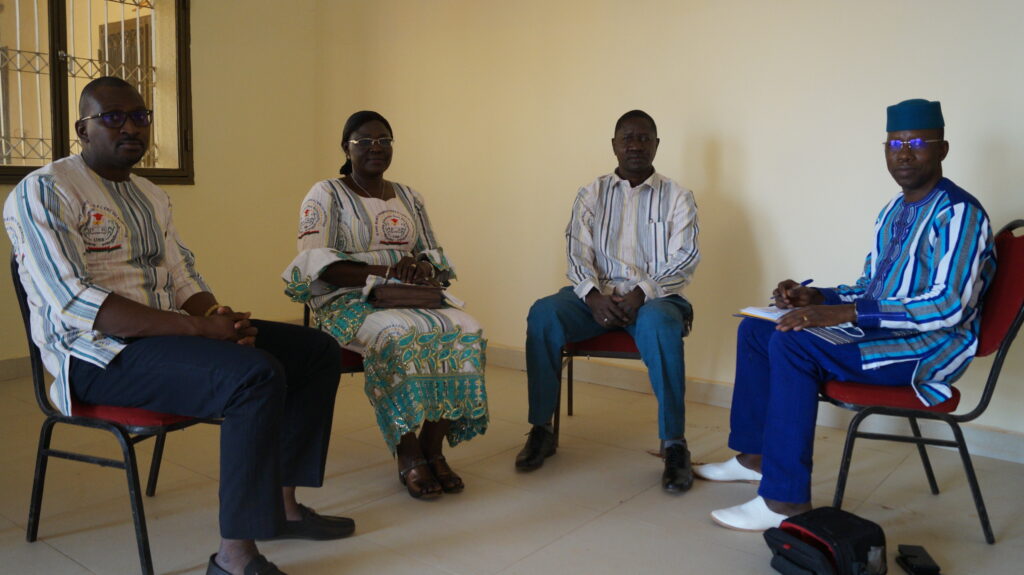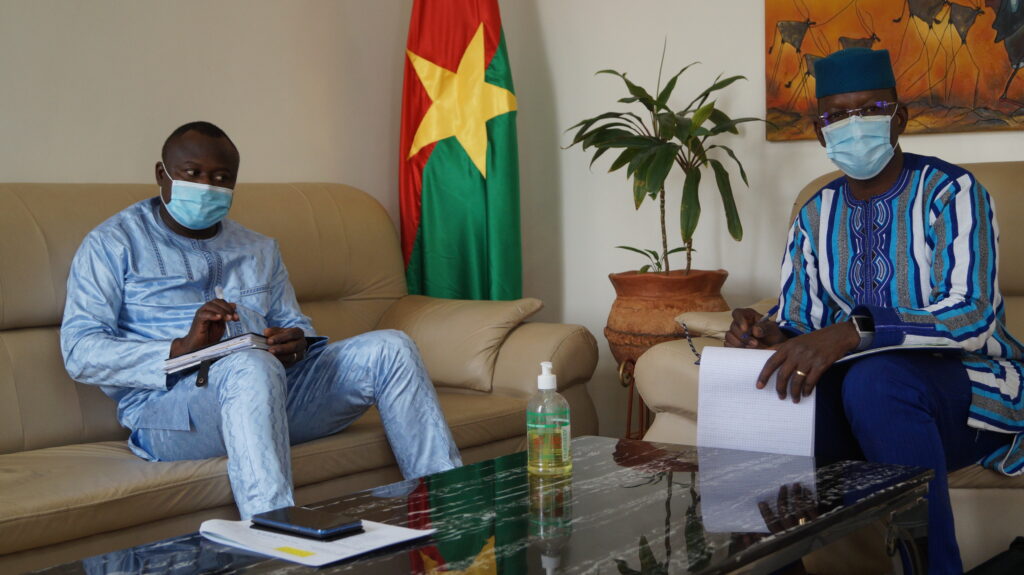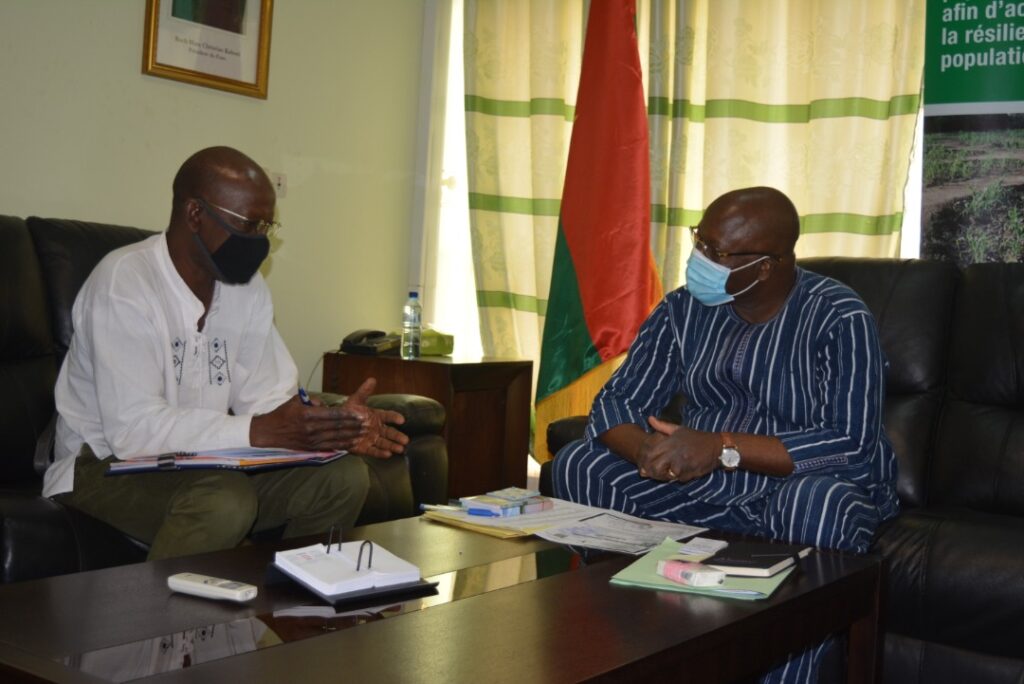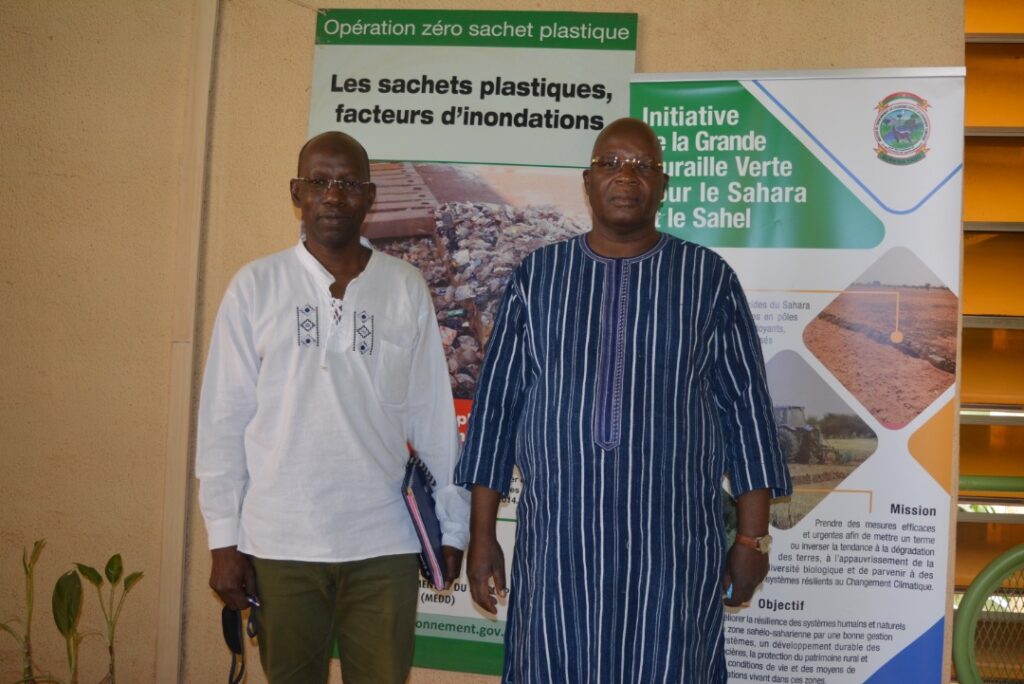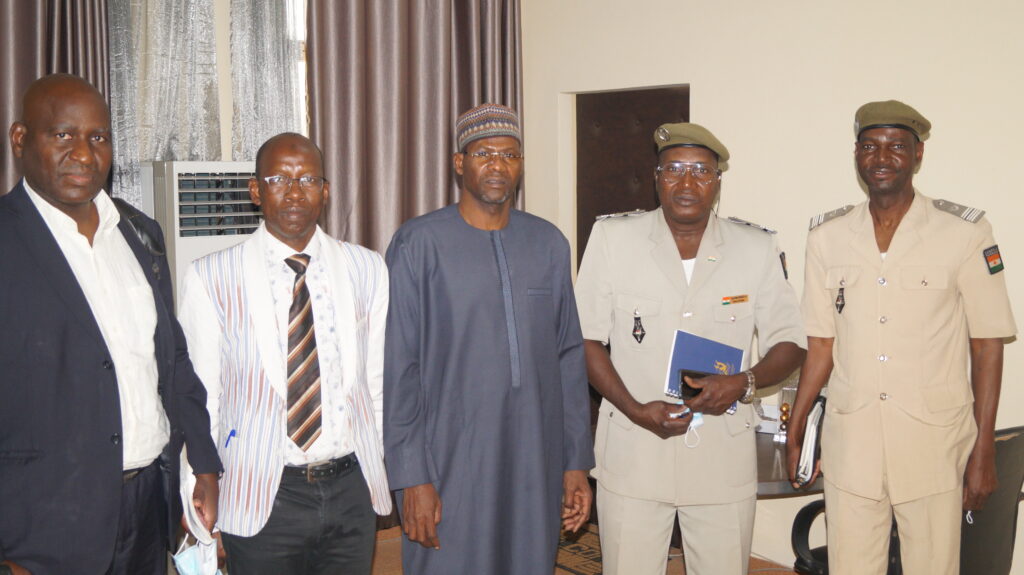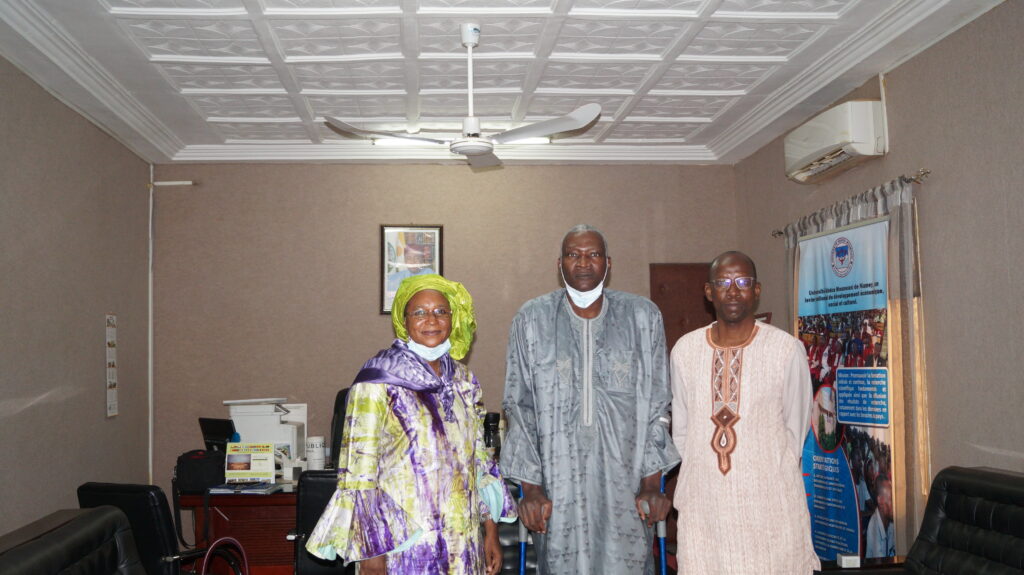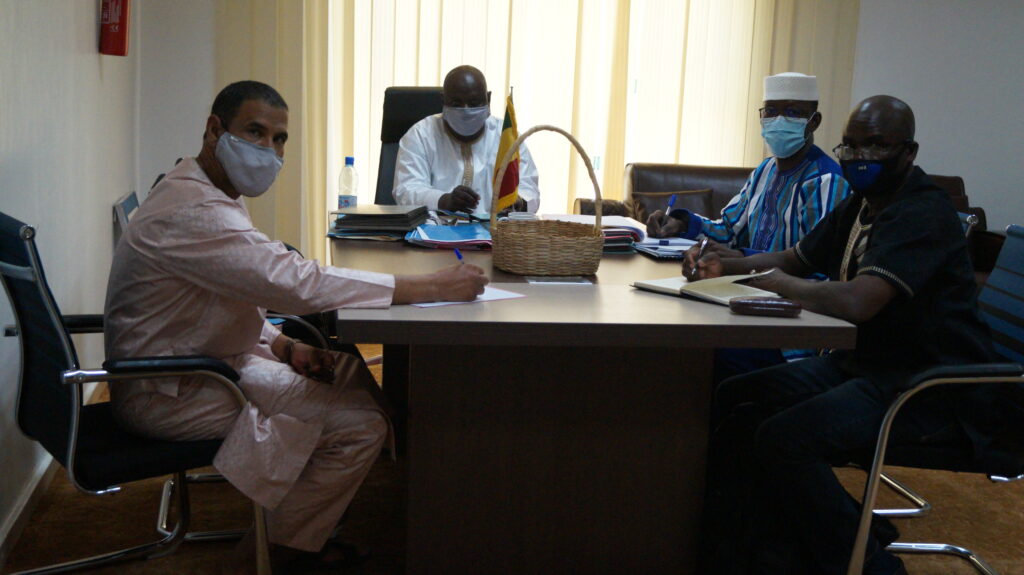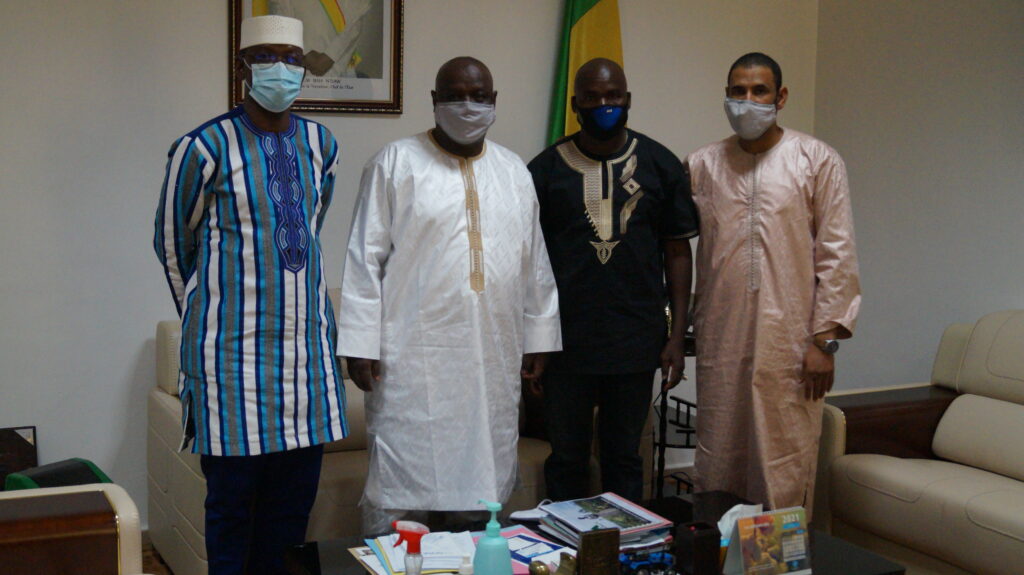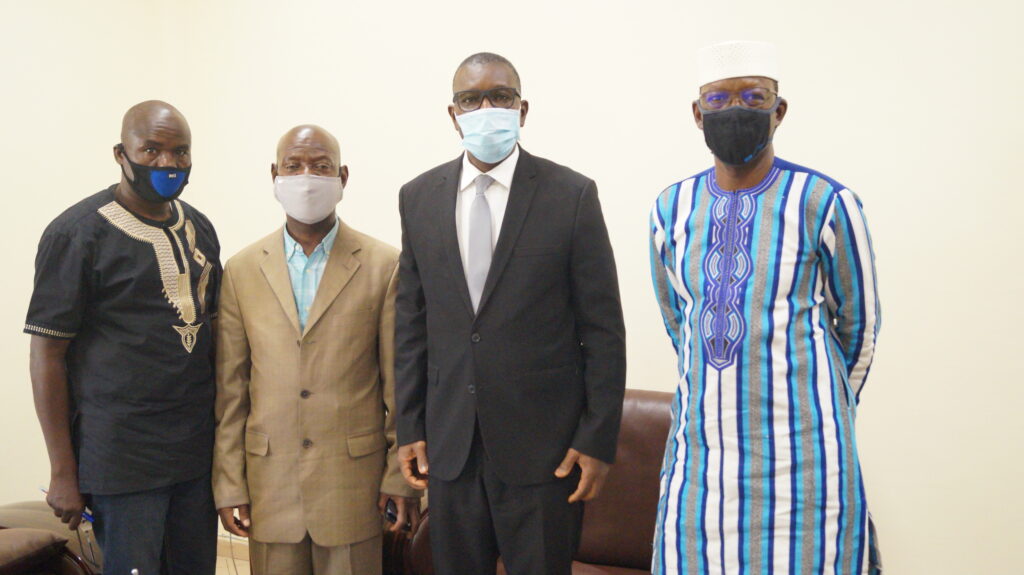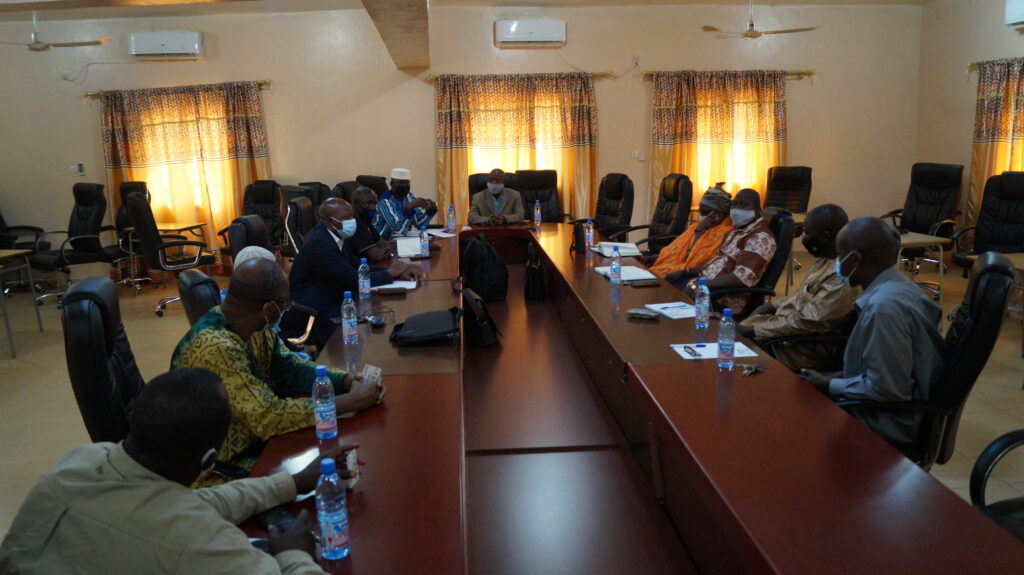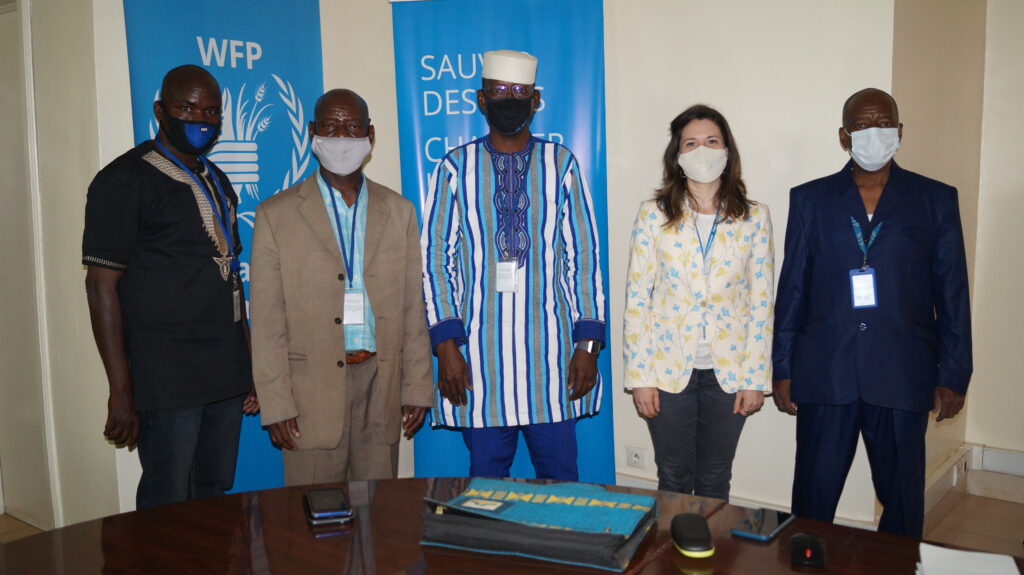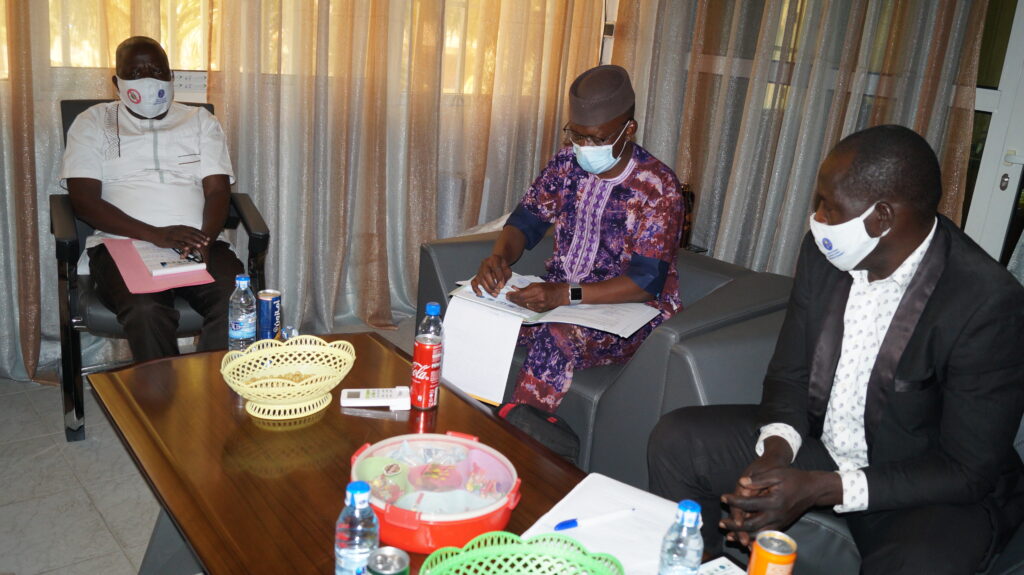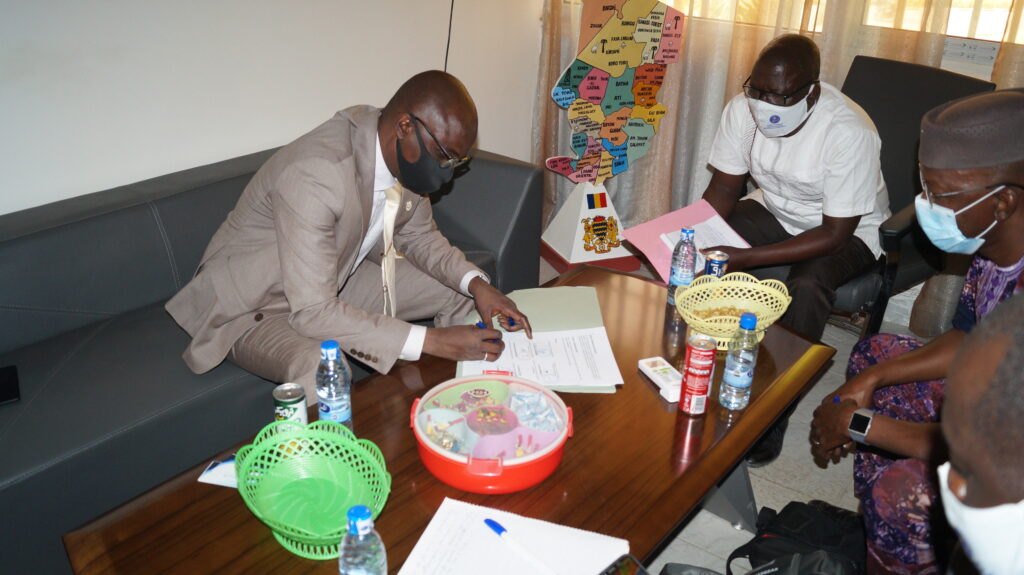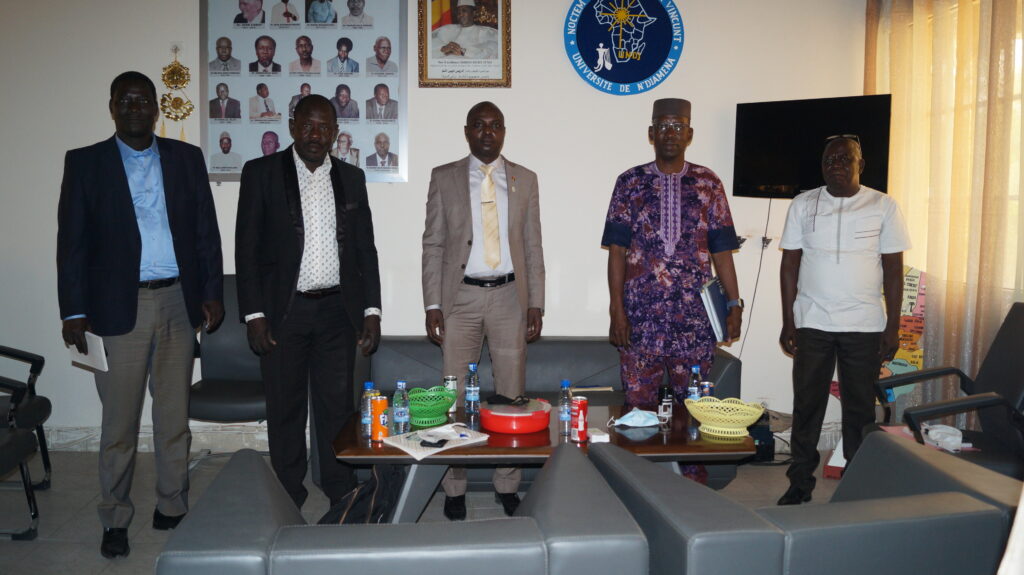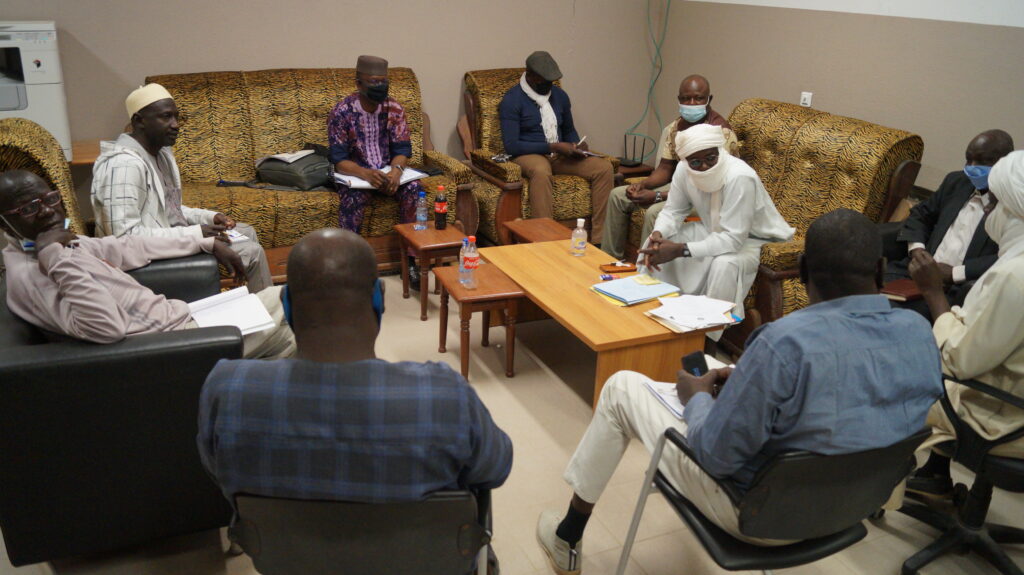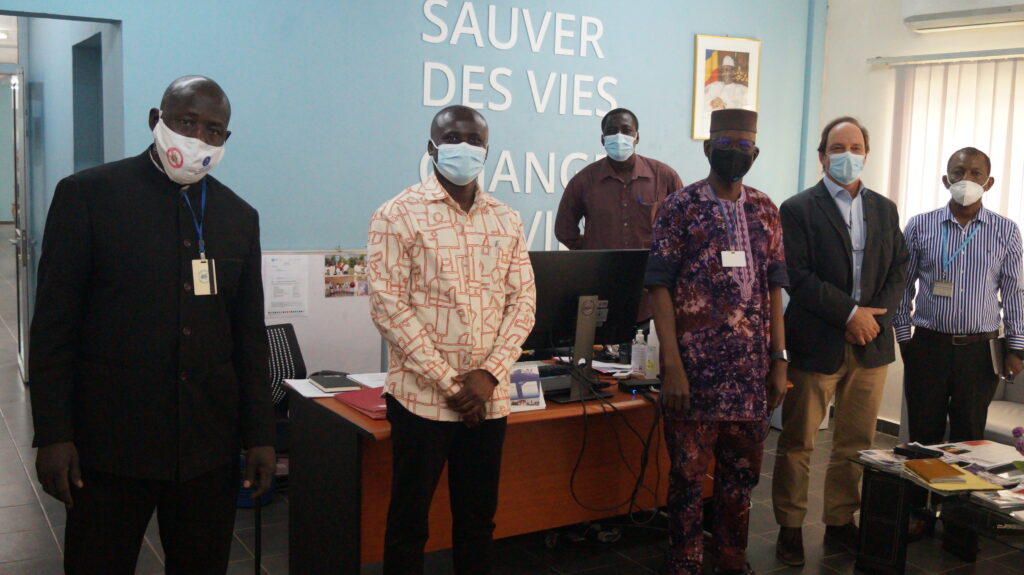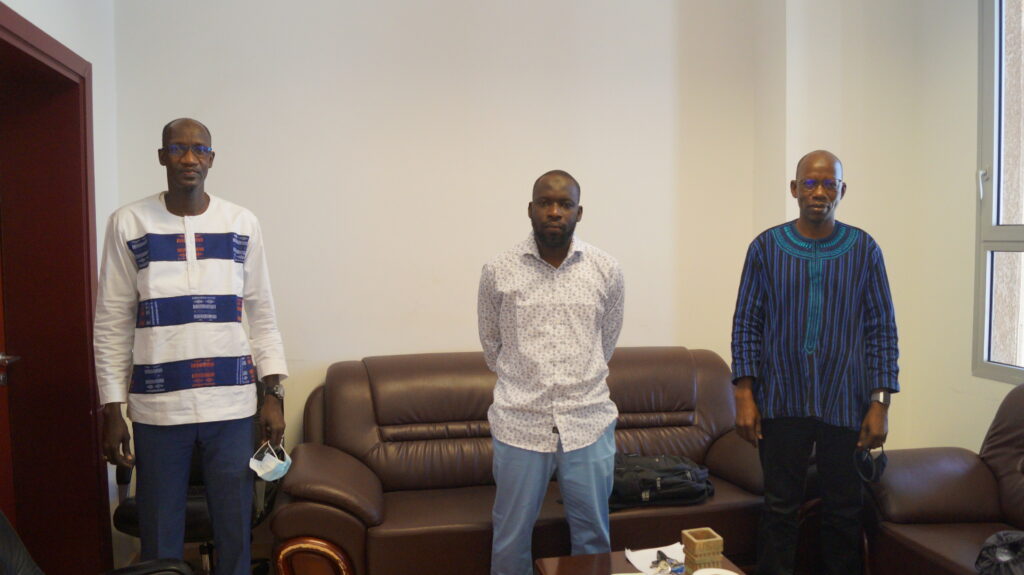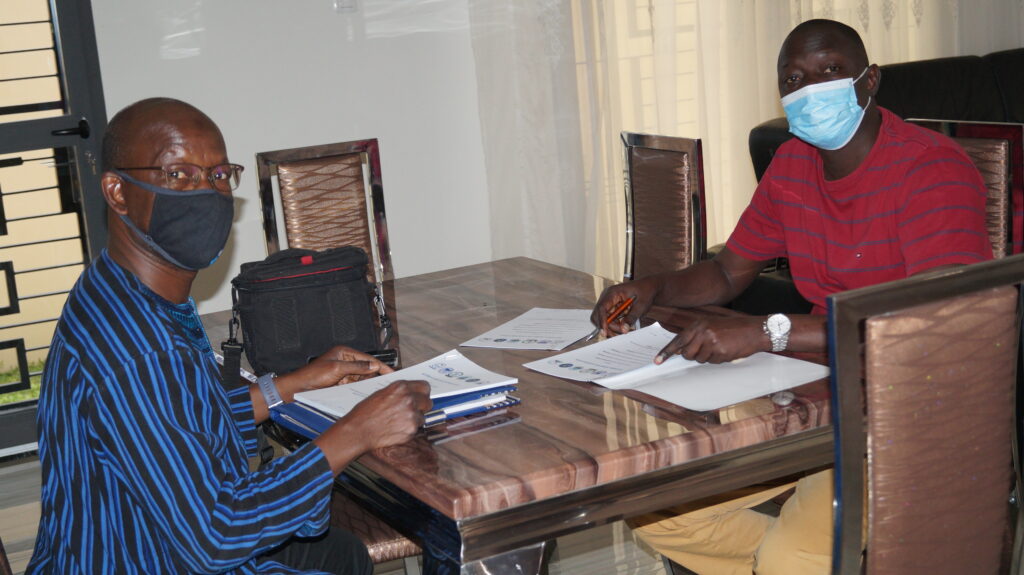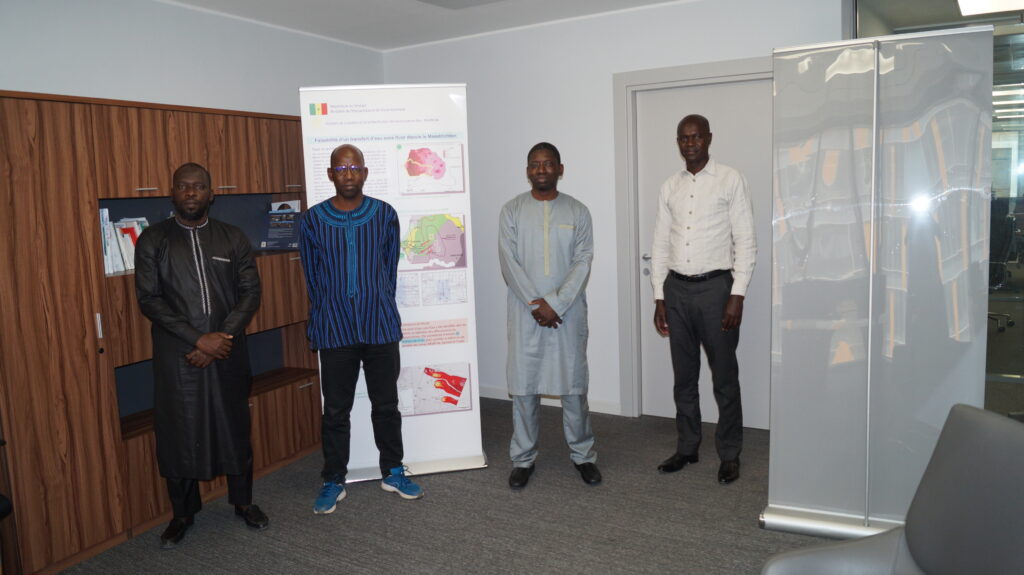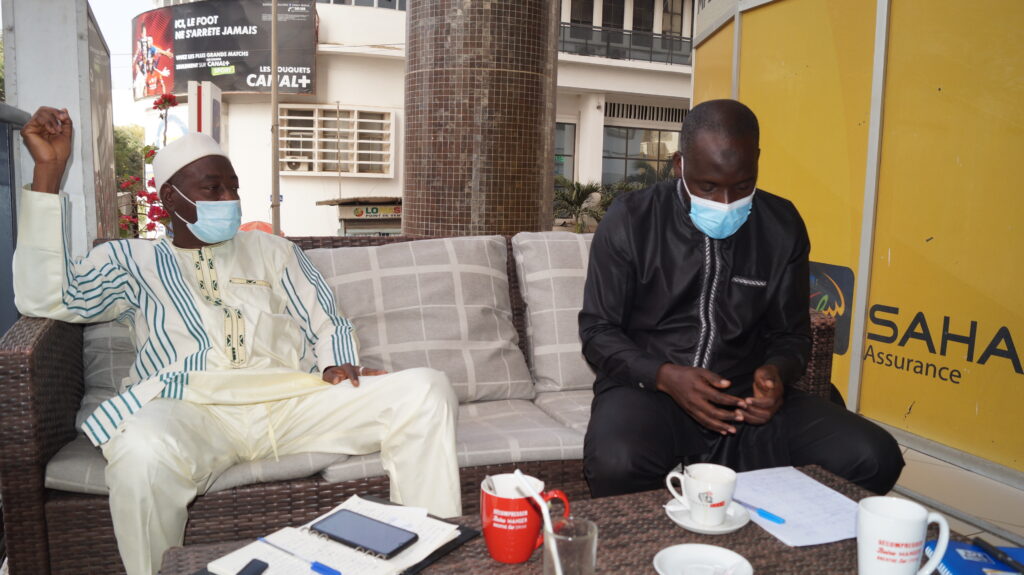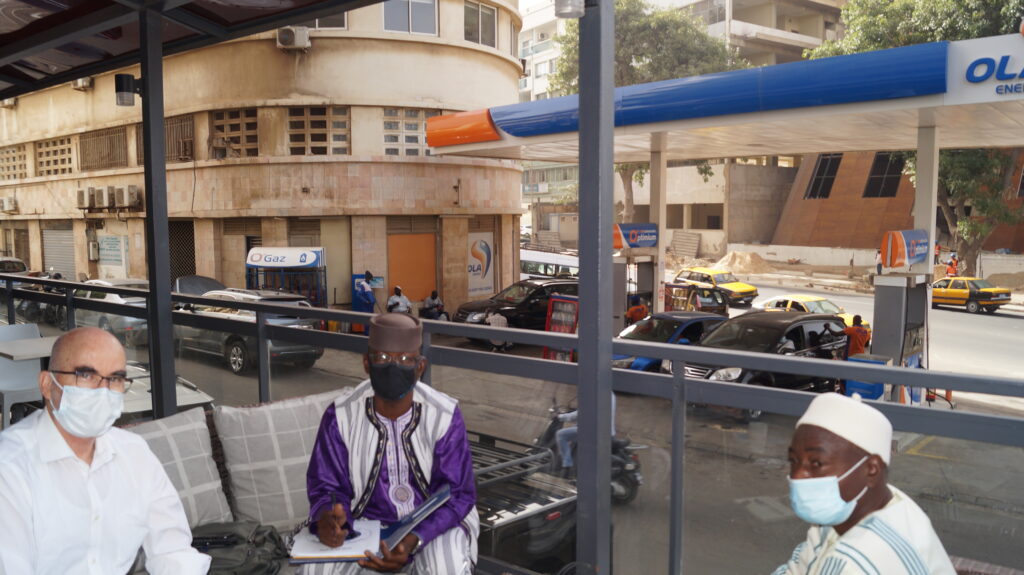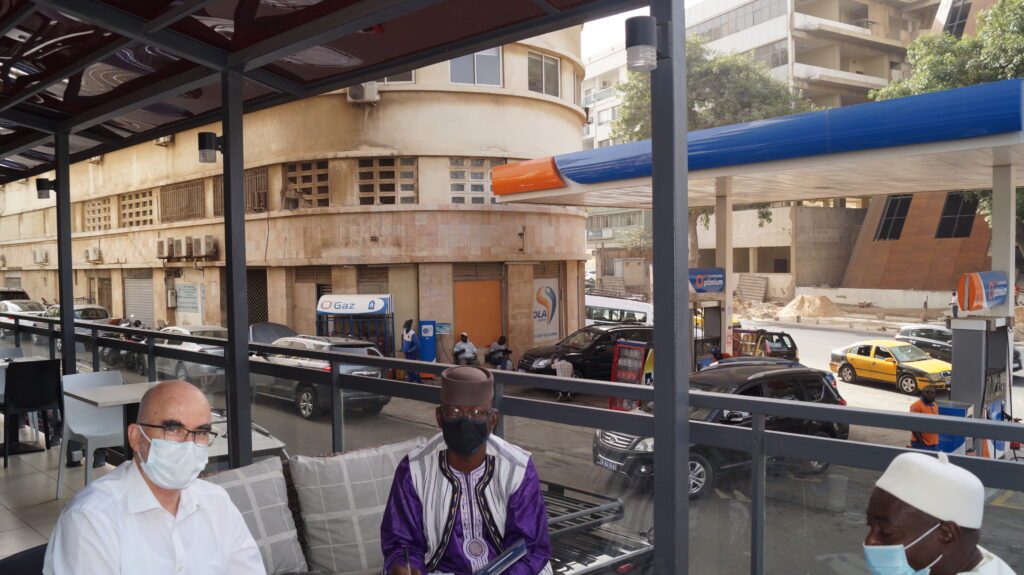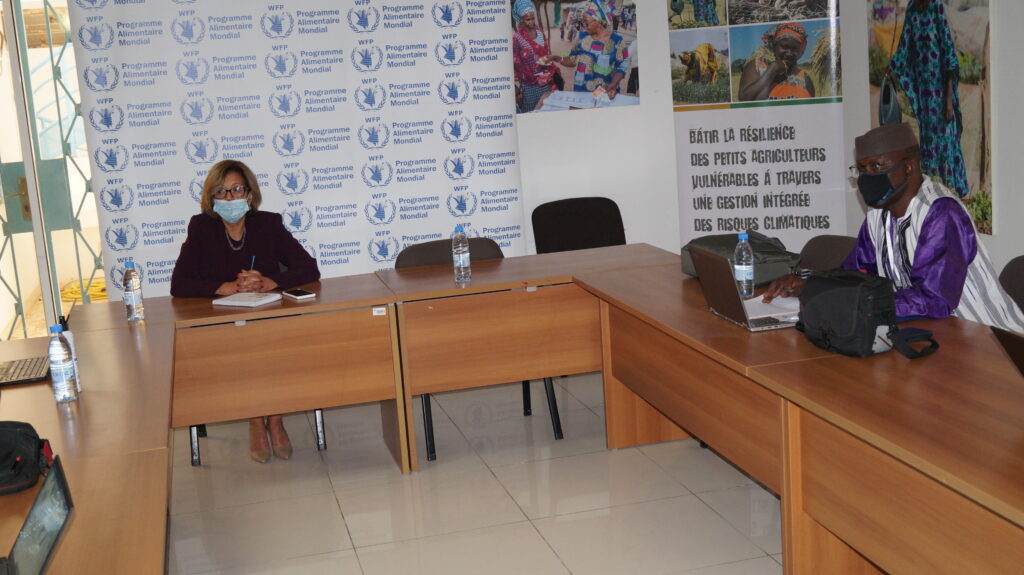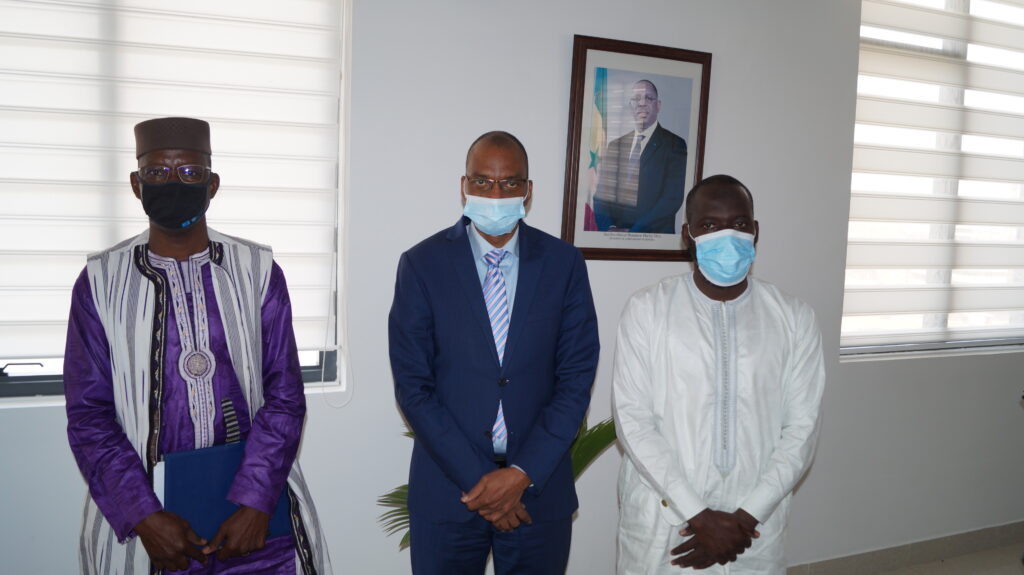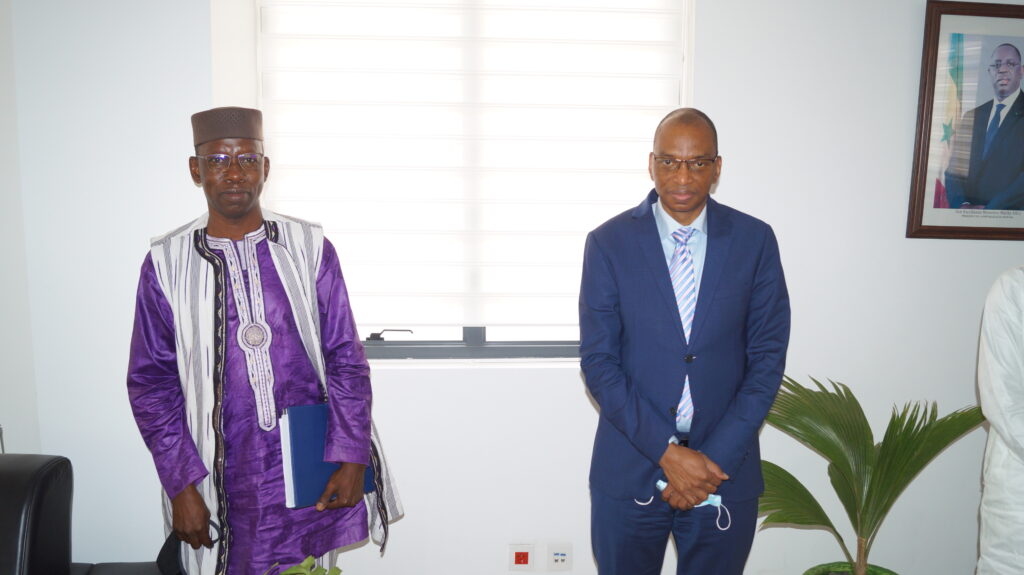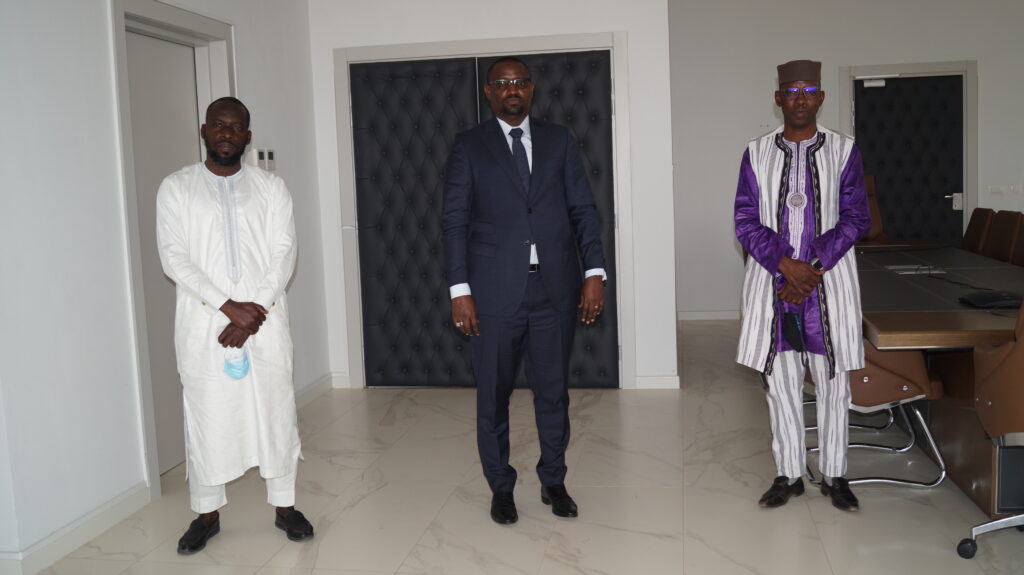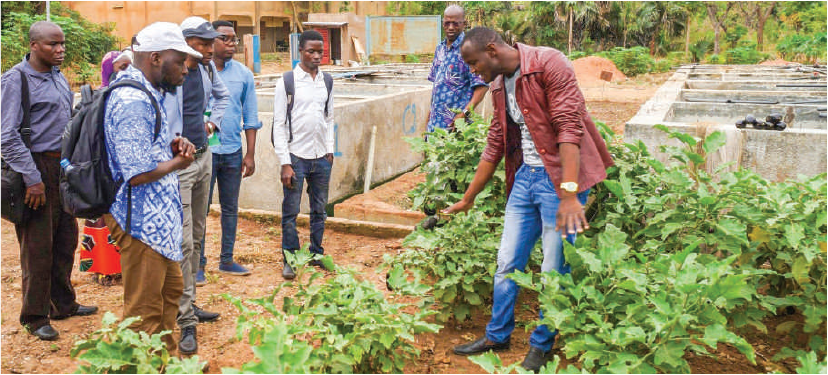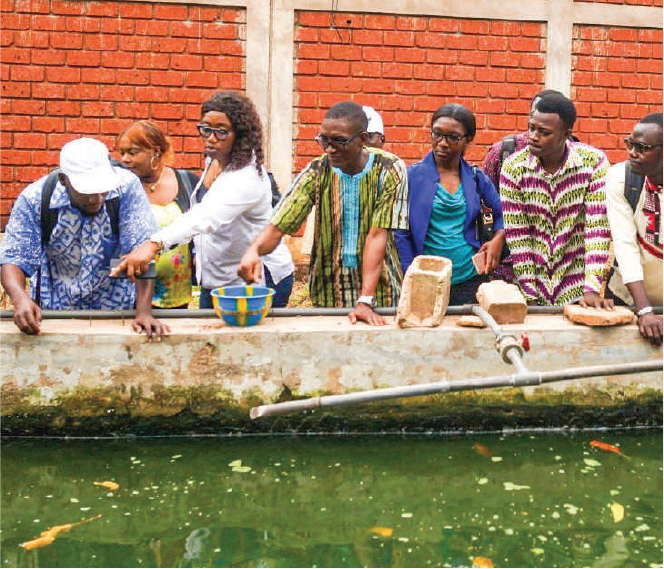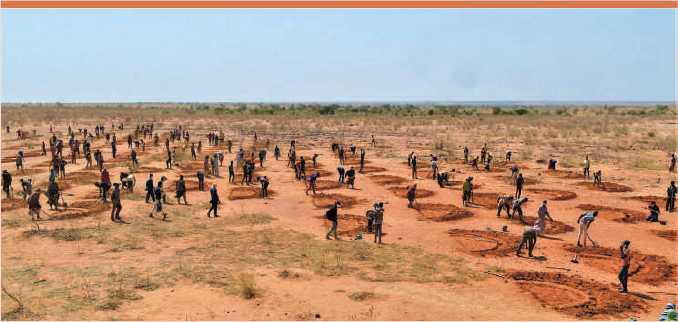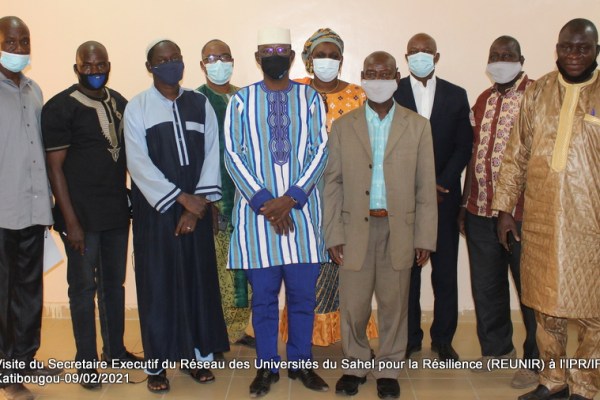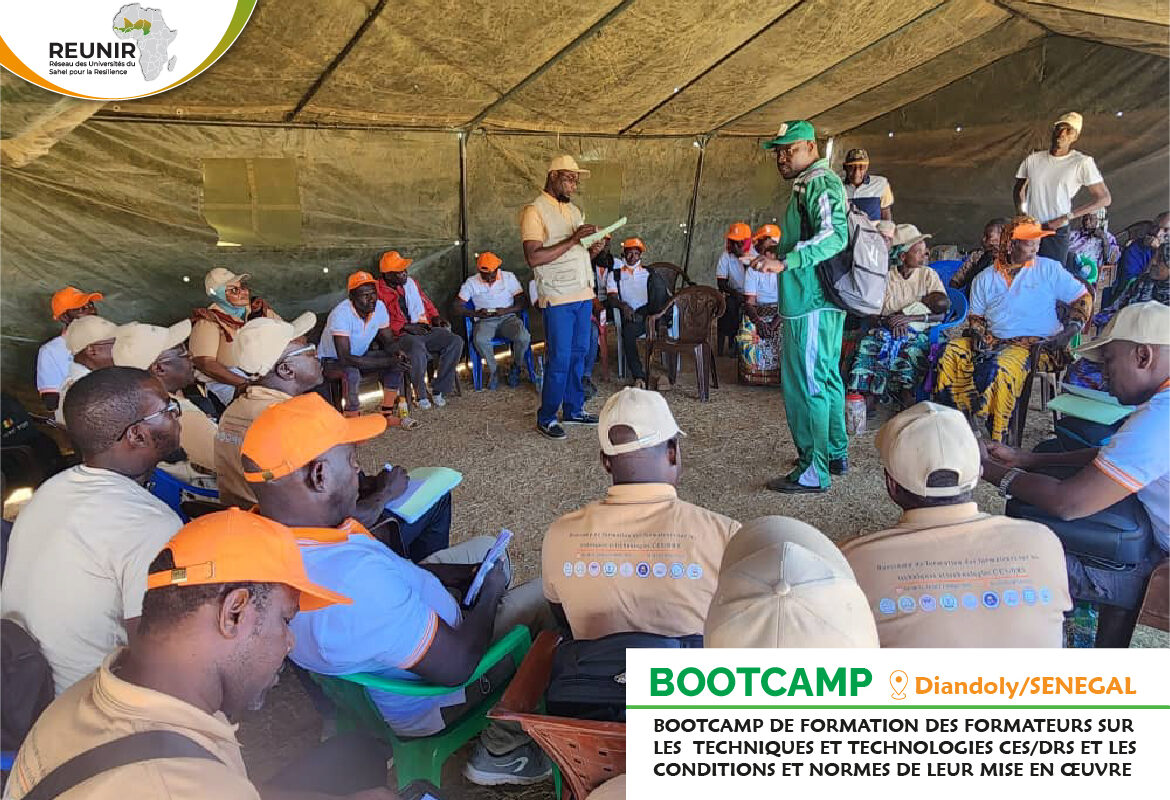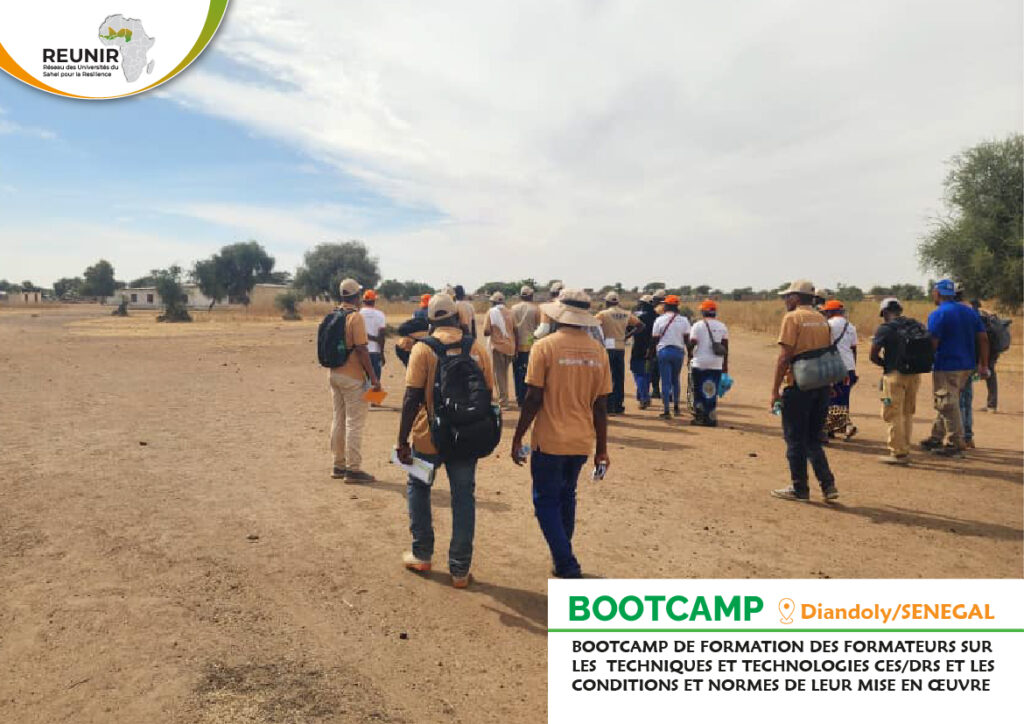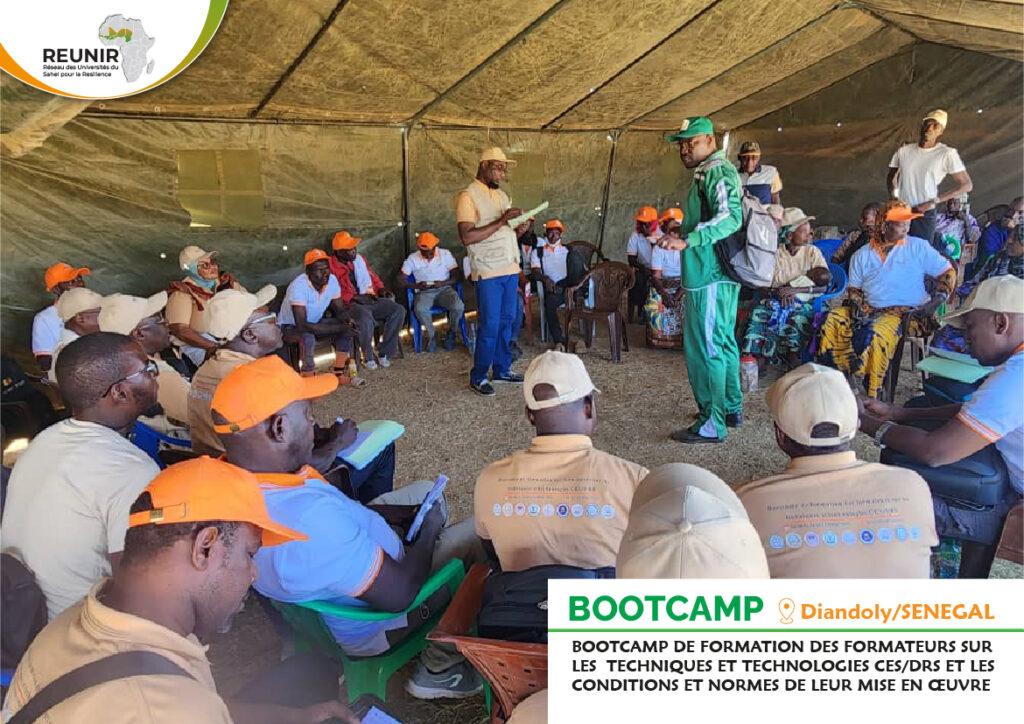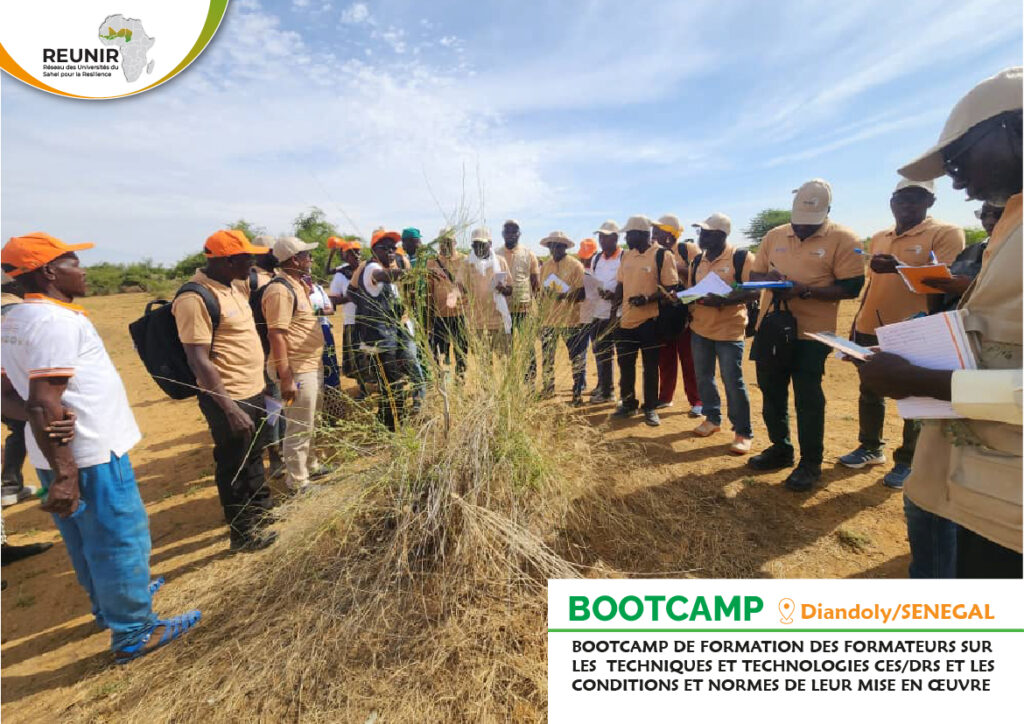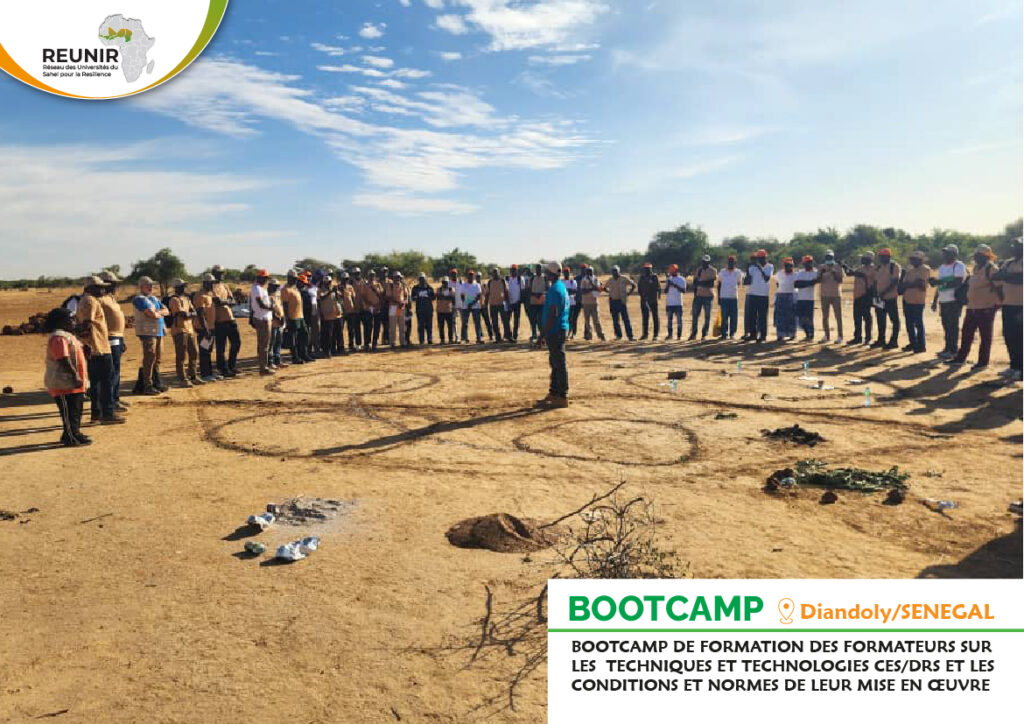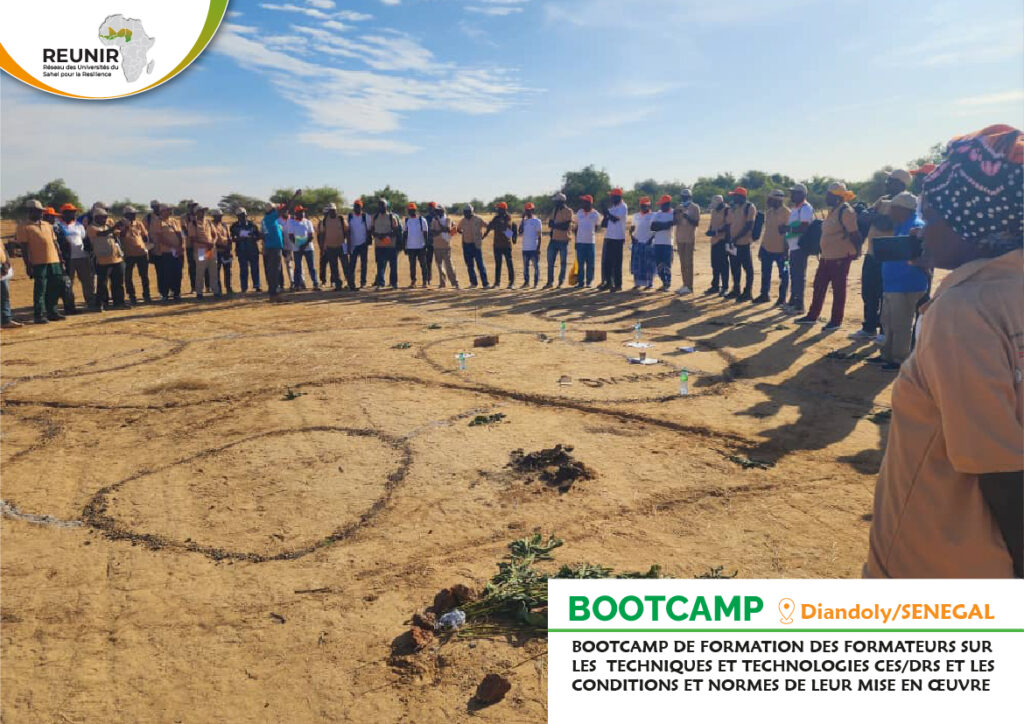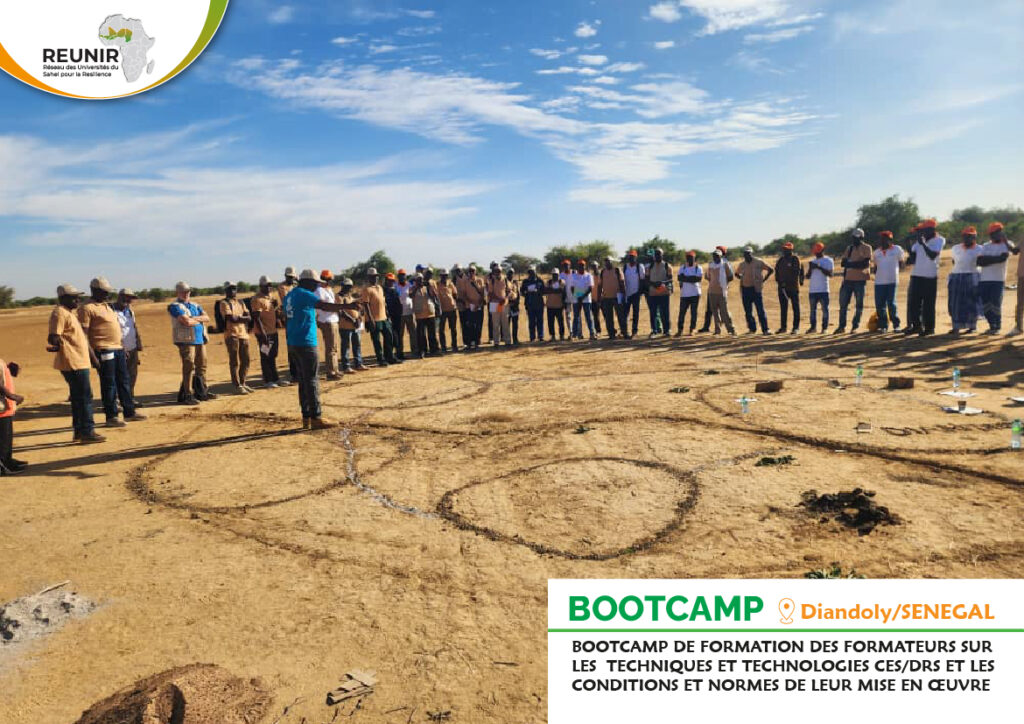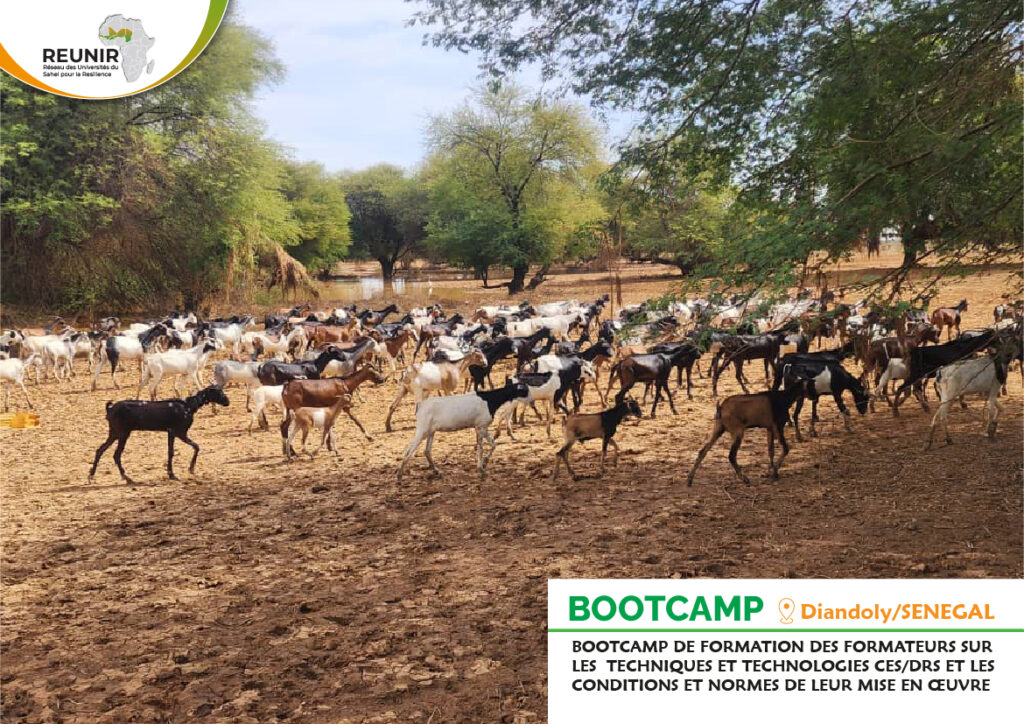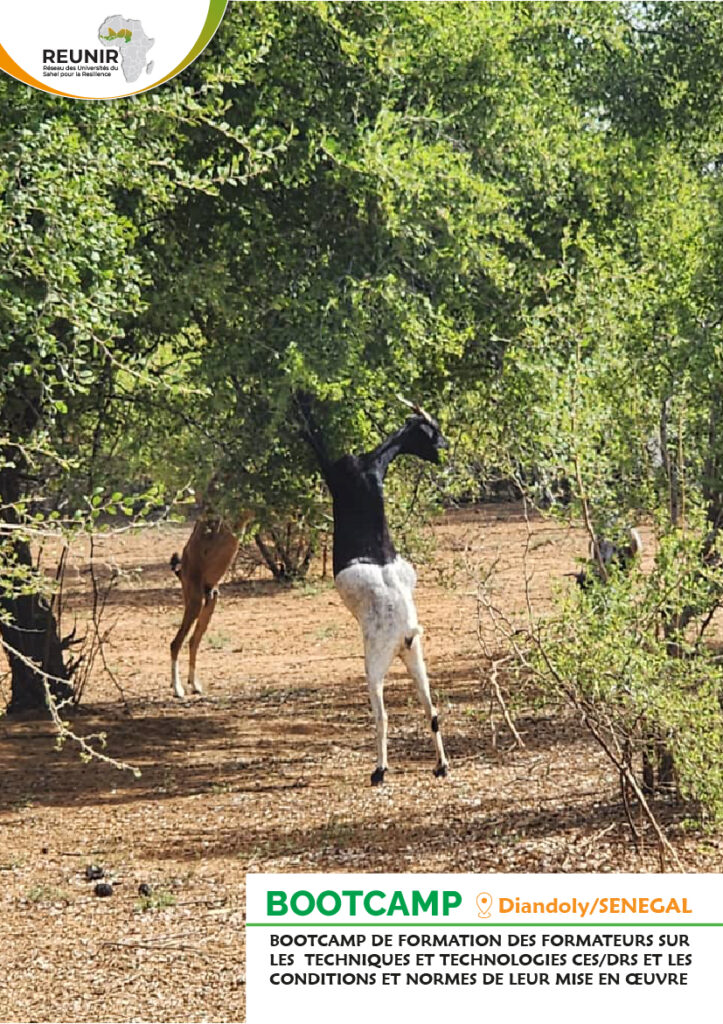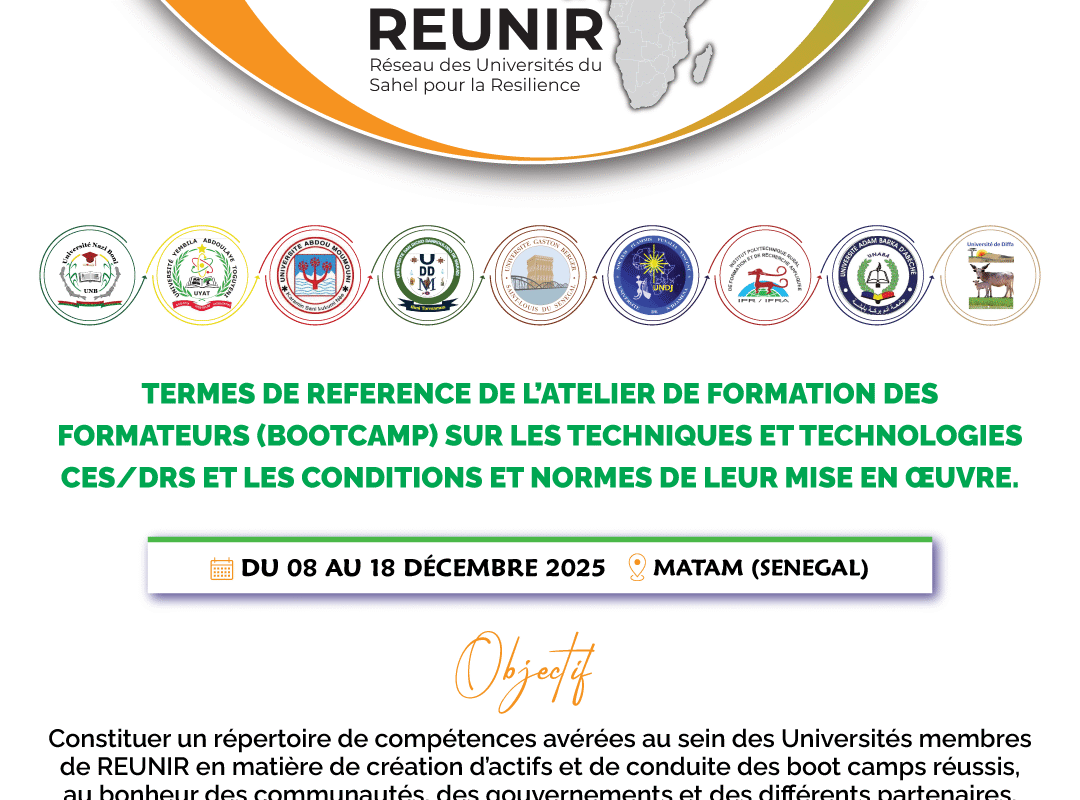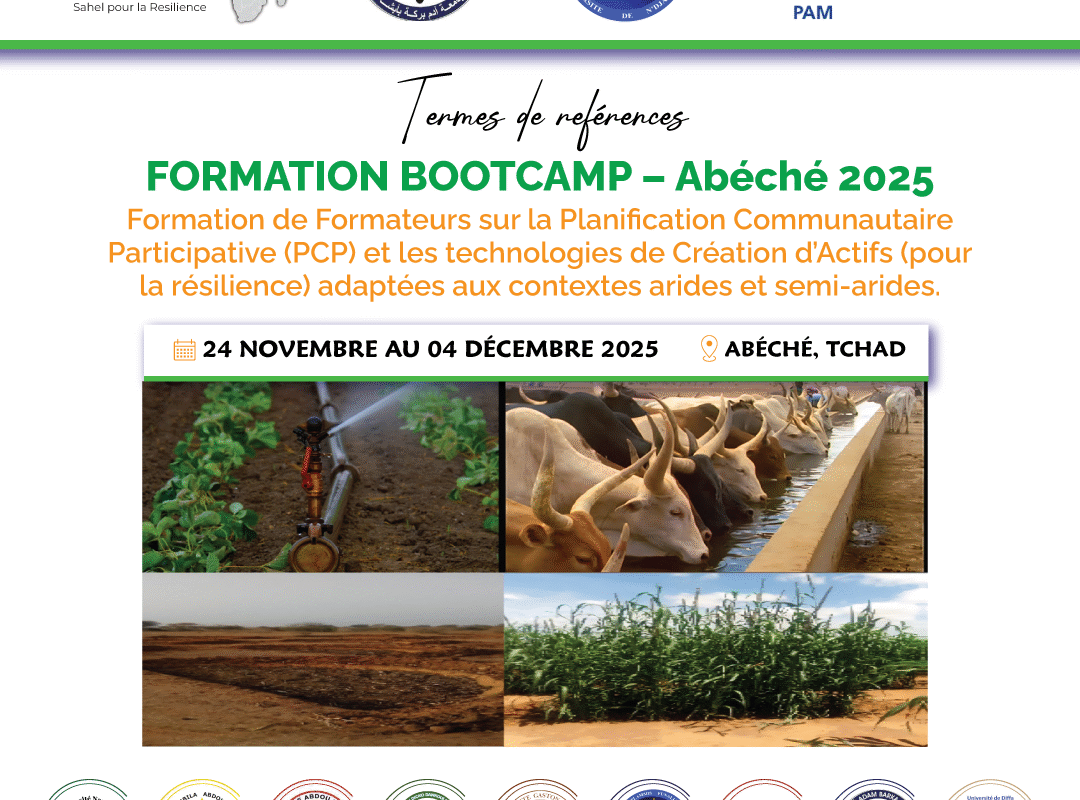Introduction
La région sahélienne est confrontée de manière récurrente à des problèmes d’insécurité alimentaire et nutritionnelle, de dégradation des ressources naturelles conséquences des changements climatiques et de pauvreté. En somme, c’est la partie du monde qui a connu, au cours de la dernière décennie, la plus forte augmentation de la faim malgré la mobilisation et l’intervention d’une diversité d’acteurs pour fournir une aide alimentaire aux plus vulnérables.
Suite aux multiples succès enregistrés à travers les conventions de partenariat scientifique entre le Programme Alimentaire Mondial (PAM), six (6) institutions d’enseignement supérieur et de recherche à savoir l’Université Nazi BONI (Burkina Faso), l’Université Gaston BERGER (Sénégal), l’Université Abdou MOUMOUNI (Niger), l’Université Dan Dicko DANKOULODO de Maradi (Niger), l’Université de N’Djamena (Tchad) et l’Institut Polytechnique Rural de Formation et de Recherche Appliquée (Mali) ont décidé d’unir leurs efforts au sein d’un réseau. Cet engagement a abouti à la création en janvier 2020 du Réseau des Universités du Sahel pour la Résilience (REUNIR). Dans la perspective de l’établissement d’un partenariat fécond entre les institutions dans les domaines de la résilience vis-à-vis de l’insécurité alimentaire et nutritionnelle, les changements climatiques et les catastrophes naturelles au Sahel, le Réseau REUNIR se veut un outil d’appui et d’aide à la décision. Suite aux conclusions de la Conférence des Recteurs, Présidents et Directeur Général des Université membres tenue en mai 2023 à Bamako au Mali, cinq (5) nouvelles Universités sont admises, ce qui portera à onze (11) institutions membres. Il s’agit de l’Université de Fada (Burkina Faso), l’Université de Ségou (Mali), l’Université de Diffa (Niger), l’Université Amadou Moctar Mbow (Sénégal) et l’Université de Abéché (Tchad).
Conformément à ses objectifs et dans le cadre de la mise en œuvre de son plan d’action 2024, le Réseau des Universités des Sahel pour la Résilience (REUNIR) organise ce colloque scientifique international sur le thème « Migration, Changement climatique, Sécurité alimentaire et Résilience au Sahel » à l’Université Dan Dicko Dankoulodo de Maradi au Niger.
Contexte et justification de la tenue du colloque
La région sahélienne est caractérisée par des disparités spatiotemporelles des caractéristiques climatiques qui influent sur les moyens d’existence notamment les productions agrosylvopastorales. Cela est dû au fait que les pays du Sahel sont dans une situation d’extrême vulnérabilité quasi permanente, liée aux sècheresses, aux attaques des ravageurs, à la dégradation continue des terres et à une désertification progressive du milieu naturel.
Depuis quelques décennies, la région du Sahel connaît une forte augmentation du nombre de personnes en insécurité alimentaire. Plus de 6 millions d’enfants de moins de 5 ans sont considérés comme malnutris. L’indice de développement humain des pays du sahel figure parmi les plus bas au monde, le niveau de pauvreté est très élevé avec une faible participation des femmes aux activités économiques et un accès faible aux services sociaux de base.
Au-delà des questions alimentaires, d’autres défis sociaux, dont l’insécurité grandissante et le phénomène de migration avec un nombre important des réfugiés et des personnes déplacées internes impactent le Sahel. L’insécurité croissante est due à l’aggravation des situations conflictuelles au Sahel et aux difficultés liées à la prise en charge de plus d’un demi-million de personnes déplacées à l’intérieur de leurs propres pays.
Thus, the major issue which justifies the holding of this conference is to create the conditions for in-depth reflection around the major challenges which undermine the development process and the construction of the resilience of Sahelian communities and ecosystems.
█ Défis liés au phénomène de migration
La migration est définie comme tout déplacement des individus de leur milieu de vie habituel vers d’autres horizons peut être familiale ou individuelle, temporaire ou définitive, professionnelle, forcée ou volontaire. C’est un phénomène universel basé sur la recherche d’une vie meilleure. La problématique migratoire constitue aujourd’hui l’un des sujets des débats en Europe et ailleurs. On estime à environ 8,4 millions de migrants en Afrique de l’Ouest, dont environ 10 % d’entre eux se dirigent vers l’Europe.
On s’accorde à considérer l’Afrique subsaharienne comme tout particulièrement exposée au changement climatique et à ses conséquences diverses (IPCC, 2014). En Afrique au sud du Sahara, surtout dans les pays du sahel, le phénomène de migration est très préoccupant avec l’intensification des migrations forcées massives aussi bien internes que transfrontalières, ayant comme principales causes l’insécurité, les famines, l’extrême pauvreté, etc. ;En effet, depuis plus d’une décennie, la région du Sahel est en proie à une insécurité grandissante liée à des conflits intercommunautaires et aux actions des groupes terroristes qui opèrent dans la sous-région. Les effets des changements climatiques se traduisent par l’irrégularité des précipitations, la dégradation des terres agricoles, l’assèchement des marres, la disparition du couvert végétal et sont à l’origine du déplacement massif des populations vers des zones où elles peuvent mener leurs activités.
Dans une analyse des questions de migration en Afrique de l’Ouest, Van der Land et al. (2018) ont mis en lumière l’importance de la migration circulaire et des conséquences des remises sur les capacités d’adaptation et sur la résilience. Les facteurs environnementaux ne sont donc pas les seules variables à étudier dans la prise de décision de migrer. Les recherches et les futures réflexions doivent nous éclairer sur les approches plus larges qui prennent en compte l’hétérogénéité des contextes ouest-africains.
█ Défis liés à la sécurité alimentaire et nutritionnelle
Depuis environ quatre décennies, les conditions climatiques extrêmes ont continuellement plongé des millions de personnes dans une insécurité alimentaire aiguë à travers l’Afrique subsaharienne. Les chocs induits par le climat sur le système alimentaire frappent maintenant environ tous les 2 ans, et sont même quasi permanents par endroit. Dans ces conditions, les exploitations agricoles de ces pays ou régions n’ont aucune possibilité de récupération avec le rapprochement des chocs. Donc pour surmonter plus rapidement les difficultés alimentaires, il y a nécessité d’investir dans la résilience des communautés et des écosystèmes. Selon les Nations Unies, en Afrique, jusqu’à 65% des terres de production sont dégradées et 45% des terres sont touchées par la désertification. Cette désertification entraîne une baisse de la fertilité des sols et des terres disponibles pour le pâturage et aussi des baisses de rendements. Dans une déclaration commune lors de la réunion annuelle du Réseau pour la prévention des crises alimentaires en Afrique de l’Ouest (RPCA) tenue à Lomé en décembre 2022, l’Organisation des Nations Unies pour l’Alimentation et l’Agriculture (FAO), le Fonds des Nations Unies pour l’Enfance (UNICEF) et le Programme Alimentaire Mondial (PAM) ont lancé la sonnette d’alarme. En effet, ces organismes soulignaient que le nombre de personnes souffrant de la faim en Afrique de l’Ouest et du Centre devrait atteindre un record historique de 48 millions dont 9 millions d’enfants l’année prochaine si des solutions urgentes et durables ne sont pas apportées.
Selon les derniers résultats du Cadre Harmonisé d’Analyse de la Sécurité Alimentaire, plus de 35 millions de personnes (dont 6,7 millions d’enfants) dans la région, soit environ 8% de la population évaluée sont actuellement incapables de satisfaire leurs besoins alimentaires et nutritionnels de base.
Il ne suffit pas pour les populations d’avoir à leur disposition des produits alimentaires, mais il faut une alimentation équilibrée du point de vue nutritionnel surtout pour les enfants de 0 à 5 ans. La malnutrition souvent dans sa forme aigue est très rependue dans nos pays. Ses causes sont d’ordre social, culturel et comportemental, mais elle est aggravée par l’insécurité grandissante et généralisée dans les pays du Sahel. Pour relever ce défi, il va falloir mobiliser les compétences scientifiques pour appuyer les stratégies de développement de nos Etats.
En outre, les pays africains en général et ceux du Sahel en particulier sont affectés par les chocs mondiaux qui ébranlent les systèmes alimentaires, notamment la volatilité des marchés des produits de base, les augmentations des prix de l’énergie et des engrais, les perturbations du commerce international et les événements en cours en Ukraine. Ces chocs ont entraîné de fortes hausses des prix des denrées alimentaires dans toute la région et ont aggravé l’insécurité alimentaire, cette inflation mettant à rude épreuve les maigres revenus des ménages et menacent la résilience des communautés.
Tous les indicateurs montrent qu’il est urgent de trouver des solutions pérennes afin d’assurer aux générations futures une terre productive en mesure de répondre à leurs besoins résumés ci-dessous en termes des défis.
█ Défis liés aux Changements Climatiques
Developing countries, particularly the Sahel countries, are vulnerable to the harmful effects of climate change. This exposure is manifested by a continuous increase in temperatures, a strong spatiotemporal variability of rainfall, accompanied by an increase in extreme events on a planetary scale. All the reasons for the increase in temperatures may not yet be known, but the main reason is due to the enormous quantities of greenhouse gases (GHGs) released into the atmosphere linked to activity. of man (Industries, agriculture, livestock, transport etc.). It is in fact admitted that climate change is difficult to reverse in the medium term.
Objectifs du Colloque international
Ce colloque international scientifique vise à mobiliser les Enseignants-Chercheurs, les Chercheurs, les Doctorants, les Acteurs du développement et les communautés pour un appui à la construction de la paix et un développement durable au Sahel. Les travaux s’articuleront autour du thème principal : « Migration, Sécurité alimentaire, Changement climatique et Résilience au sahel : Quelles contributions de la recherche scientifique pour une paix et un développement durable ? ».
The main objective is to make proposals for tools and intervention strategies to achieve sustainable resilience of populations and ecosystems.
Specifically, this will involve analyzing:
- the impacts of climate change and agrosylvopastoral and fishing practices in the Sahel and environmental risks;
- the causes, issues and consequences of migration and food insecurity in the Sahel;
- the causes, issues and consequences of migration and food insecurity in the Sahel;
- systems and/or approaches for managing cross-border migratory flows.
Organisation du colloque International
Le colloque international durera trois (3) jours du 2 au 4 mai 2024. Outre la cérémonie d’ouverture, le colloque débutera par une conférence inaugurale sur la problématique de développement durable au Sahel – enjeux et défis. Ensuite cinq panels seront organisés sur les sous thèmes suivants :
█ Panel 1 : Food and nutritional security, migration and sustainable development in the Sahel;
█ Panel 2 : Changement climatique et pratiques agrosylvopastorales et halieutiques ;
█ Panel 3 : Natural resource governance and sustainable land management for resilience;
█ Panel 4 : Systems and approaches for sustainable management of migration flows;
█ Panel 5 : Round table discussion on research, development issues and resilience.
